40+ HR tools growing companies must use
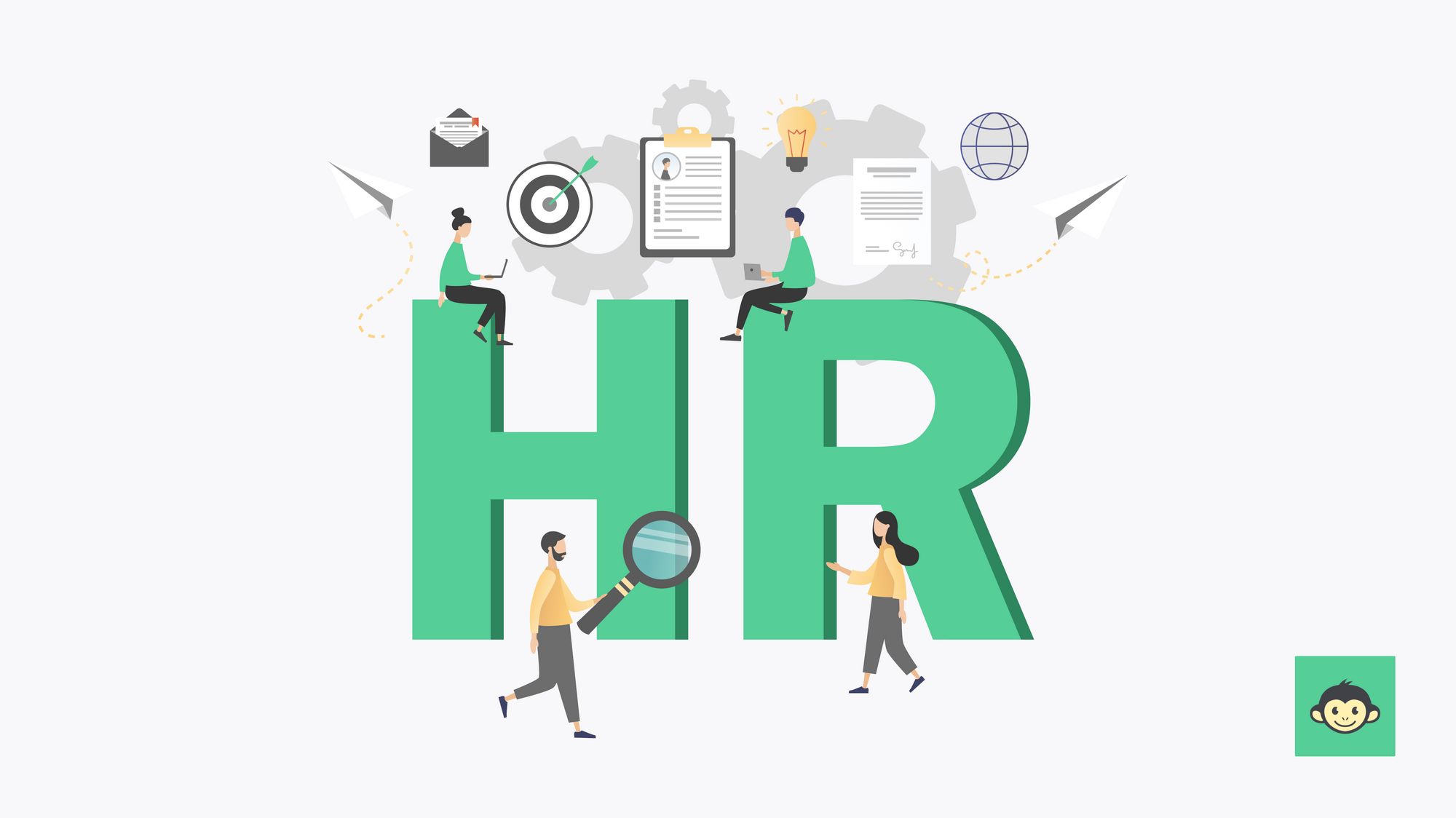
Have you ever witnessed a symphony without a conductor? A talented set of musicians, each playing their heart out but lacking that guiding hand to weave their efforts into a harmonious masterpiece.
Just like that, a business, no matter how talented its employees, can feel like a discordant mess without the right HR software orchestrating the show.
So, we're about to dive headfirst into the vibrant world of HR tools – those magical instruments that transform chaos into a melodious rhythm within growing companies.
We'll unveil the secrets behind these tools, explore why they're as vital as coffee on a Monday morning, and share real-world stories that'll make you nod in recognition.
So, if you're curious to unravel how these software for human resources can supercharge your business, hold onto your seat because we're about to uncover the captivating symphony of 40+ HR tools that'll have your company humming a hit tune in 2024.
What are HR tools?

Before that, what are HR tools, you ask? Well, imagine if you had a team of tireless assistants who effortlessly juggled the myriad tasks that come with managing a workforce.
HR software are the digital counterparts of these adept assistants, designed to streamline, automate, and enhance various aspects of human resource management within an organization.
At their core, HR tools encompass a range of software, applications, and platforms meticulously engineered to alleviate the complexities surrounding employee management.
To explore different options for HR management, consider the full spectrum of functionalities these tools offer. From recruitment and onboarding to performance evaluation and payroll processing, these tools serve as your strategic companions, optimizing processes and liberating valuable time and resources. If you're considering buying a business, implementing robust HR tools becomes even more crucial, as they can help you seamlessly integrate new teams and processes during the transition.
Consider this: you're in charge of a rapidly expanding company. Traditional manual processes for hiring, training, and monitoring employee progress not only consume precious hours but are also prone to human error.
This is where HR software enter the stage. They step in to revolutionize the way you attract, retain, and nurture talent. By automating repetitive tasks, such as sifting through stacks of resumes or calculating working hours, HR tools empower your team to focus on high-impact initiatives that drive growth.
Why are HR tools important?
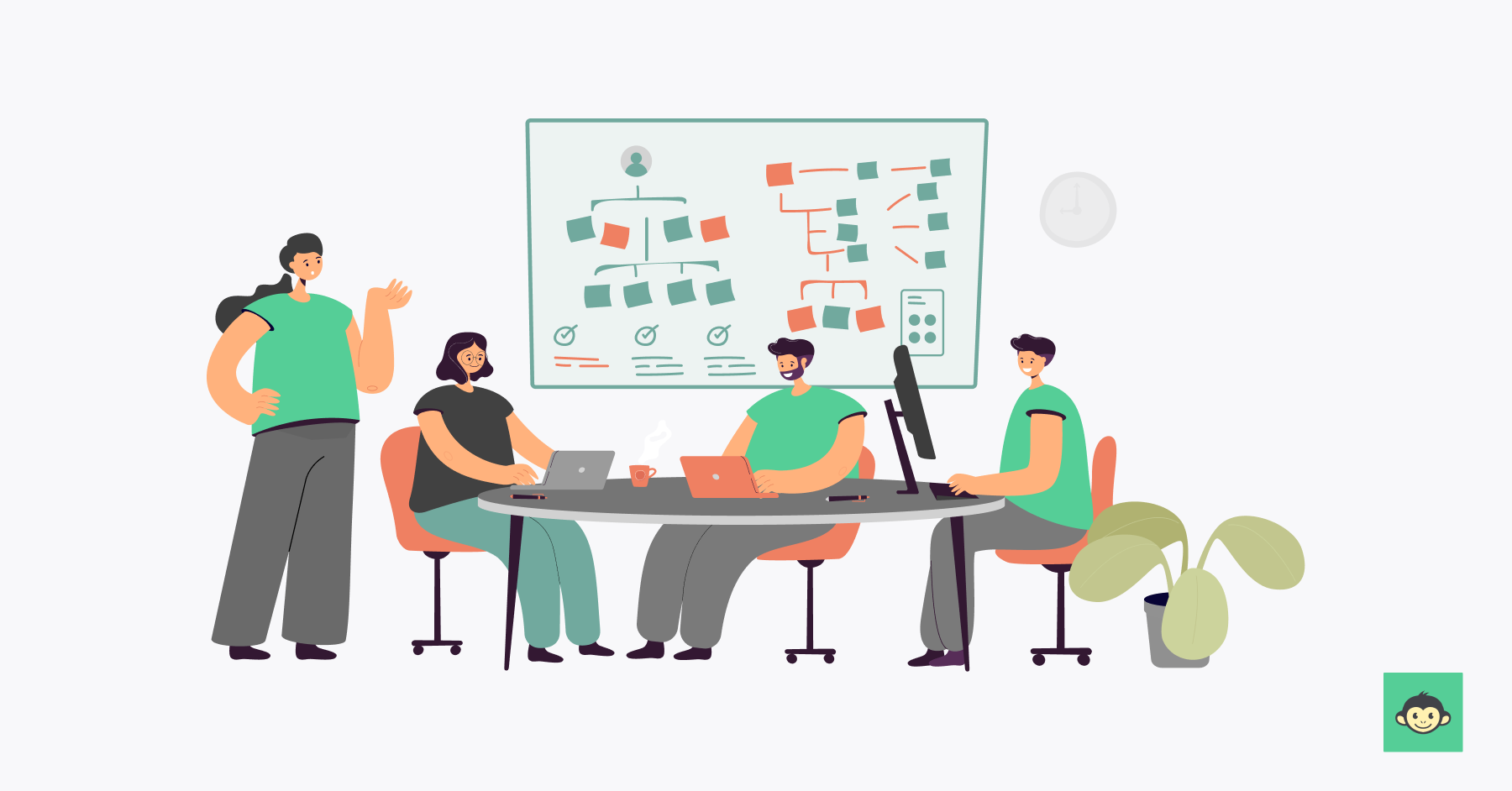
In the ever-evolving landscape of modern business, HR software stands as steadfast pillars that uphold the foundation of seamless human resource management.
Their importance lies in their ability to transcend the realm of mere convenience and venture into the domain of strategic empowerment.
Consider the intricate web of responsibilities HR professionals navigate daily – from talent acquisition and performance evaluation to compliance adherence and employee well-being. Without the aid of HR tools, this intricate choreography can easily devolve into chaos.
These tools emerge as the architects of order, instilling efficiency and accuracy into processes that time-consuming manual interventions and error-prone methods could otherwise mar.
Furthermore, HR tools empower decision-makers with data-driven insights, transforming gut feelings into well-informed strategies.
In a business landscape where staying ahead of the curve is paramount, these tools act as the compass guiding you through the labyrinth of workforce dynamics.
Crucially, the impact of HR software extends beyond the realm of operations. They play a pivotal role in enhancing employee experience – a factor intrinsically linked to engagement, productivity, and ultimately, the success of an enterprise.
By automating routine administrative tasks, HR tools liberate HR professionals to focus on meaningful interactions and initiatives that foster a vibrant company culture.
What challenges do businesses face without HR tools?

Here's a snapshot of the hurdles that can impede progress and disrupt the harmonious rhythm of organizational growth:
- Operational bottlenecks: Without HR tools, routine administrative tasks such as payroll processing, leave management, and documentation become tedious, time-consuming endeavors, hampering overall efficiency.
- Data disarray: The absence of HR tools often results in scattered, disorganized employee data stored in disparate systems, making it a Herculean task to retrieve and analyze crucial information.
- Limited decision insights: Lacking HR software means basing decisions on intuition rather than data-driven insights, potentially leading to suboptimal talent management strategies and resource allocation.
- Recruitment roadblocks: Manual recruitment processes can slow down candidate sourcing, screening, and onboarding, allowing top talent to slip through the cracks in a competitive job market.
- Compliance conundrums: Adhering to ever-evolving labor laws and regulations becomes an uphill battle when HR department lack tools that automate compliance tracking and reporting.
- Engagement erosion: Without tools for measuring employee engagement and feedback, businesses struggle to gauge the pulse of their workforce, risking disengagement and reduced productivity.
- Ineffective performance management: The absence of performance tracking tools can lead to vague evaluation processes, hindering the nurturing of employee growth and potential.
- Strategic stagnation: In the absence of HR tools' strategic insights, businesses may find themselves lagging behind competitors in areas such as skill development, succession planning, and workforce optimization.
- Talent retention troubles: Without efficient HR tools, identifying and addressing the reasons behind employee turnover becomes challenging, leading to higher attrition rates and loss of valuable talent.
- Communication breakdowns: The lack of centralized communication platforms can result in fragmented information dissemination, reducing clarity and increasing the risk of misunderstandings within the organization.
What are the 7 pillars of HR?

These pillars are the guiding principles that shape the strategic landscape of HR practices within organizations, ensuring a holistic approach to employee well-being and organizational success.
- Recruitment and selection: At the core of any workforce lies the process of recruitment and selection. This pillar focuses on sourcing, attracting, and hiring the right talent for the right roles, aligning individual skills and aspirations with the company's overarching objectives.
- Training and development: Nurturing talent doesn't end with hiring; it's an ongoing endeavor. This pillar is dedicated to equipping employees with the skills and knowledge they need to excel in their roles, fostering professional growth and adaptability.
- Performance management: Ensuring that employees are performing at their best is essential. Performance management involves setting clear goals, providing regular feedback, and conducting evaluations to enhance individual and collective productivity.
- Compensation and benefits: Recognizing and rewarding employees' contributions is crucial for motivation and retention. This pillar encompasses designing competitive compensation packages and attractive benefits that acknowledge employees' value.
- Employee engagement: Engaged employees are the lifeblood of a thriving organization. This pillar focuses on creating a positive work environment, fostering open communication, and implementing initiatives that bolster job satisfaction and commitment.
- Workplace health and safety: The well-being of employees is paramount. This pillar centers on ensuring a safe and conducive work environment, adhering to health and safety regulations, and promoting physical and mental wellness.
- HR technology and data analytics: In the digital age, data-driven decisions reign supreme. This pillar emphasizes the integration of HR software and technology to streamline processes, gather insights, and facilitate strategic planning.
The top 8 essential features of HR tools

The following are the pivotal features that stand as beacons of efficiency and effectiveness, shaping the landscape of modern HR practices:
- Employee data management: Centralizing and organizing employee information simplifies core HR processes, from onboarding to performance evaluation, ensuring accuracy and compliance.
- Recruitment and applicant tracking: From job posting to candidate selection, this feature streamlines recruitment, enabling seamless collaboration among hiring teams and enhancing the candidate experience.
- Performance management: Facilitating goal setting, feedback, and progress tracking, this feature enhances employee performance by promoting regular communication and transparent evaluations.
- Learning and development: Robust learning platforms offer training programs, skill assessments, and personalized learning paths, nurturing employee growth and keeping skills aligned with business goals.
- Time and attendance tracking: Automating time tracking and leave management minimizes errors, ensures fair compensation, and fosters workforce accountability.
- Payroll processing: Payroll processing involves accurate payroll calculation, tax deductions, and compliance adherence, which are essential to reducing the administrative burden. Focusing on accuracy in payroll processing ensures timely and error-free payments for employees, enhancing trust and operational efficiency.
- Employee self-service: Empowering employees to access and update their information, request leave, and manage benefits fosters autonomy and reduces administrative overhead.
- Analytics and reporting: Data-driven insights allow HR professionals to identify trends, forecast needs, and make informed decisions, propelling the organization forward strategically.
What are the types of HR tools?

HR tools for measuring employee engagement
Employee engagement is the heartbeat of a thriving workplace. These employee survey tools employ surveys, feedback mechanisms, and sentiment analysis to gauge employee satisfaction, gather insights into workplace dynamics, and identify areas for improvement. By understanding the pulse of your workforce, you can take strategic actions to enhance morale, retention, and overall productivity.
HR tools for recruitment
Finding the right talent is paramount, and recruitment tools are the compass guiding you through the talent landscape. These tools automate job posting, applicant tracking, resume screening, and even initial interviews. They streamline the hiring process, ensuring efficient collaboration among hiring teams, and fostering a seamless experience for candidates, from application to onboarding.
HR tools for performance management
Transparent and effective performance management tools facilitate goal setting, regular feedback, and continuous development. They provide a structured platform for managers and employees to track progress, assess achievements, and identify areas for improvement, fostering a culture of accountability and growth.
HR tools for training and development
In the pursuit of organizational excellence, training and development tools are invaluable. They offer e-learning platforms, personalized training modules, and skill assessment tools that empower employees to acquire new competencies, enhancing their value to the company and their own professional growth.
HR tools for people management
Managing a diverse workforce requires tools that streamline communication, collaboration, and employee relations. These tools facilitate easy interaction between HR professionals and employees, allowing for seamless information sharing, issue resolution, and the nurturing of a cohesive organizational culture.
For teams that include contractors, contractor management tools help ensure smooth onboarding, compliance, and effective collaboration alongside permanent staff.
HR tools for payroll management
Precise payroll management tools eliminate manual calculations, ensure timely and accurate salary disbursement, and handle tax deductions and compliance. By automating these processes, you not only save time but also minimize errors that could lead to dissatisfaction and legal issues. In some cases, HR may also be involved in processing contractor payments. Since these payments differ from regular payroll, using accounts payable automation tools can help streamline the process and improve efficiency.
HR tools for time and attendance management
Monitoring work hours and attendance manually is a time-consuming task prone to errors. Time and attendance management tools automate these processes, offering real-time tracking, leave management, and insights into workforce availability, enhancing efficiency and payroll accuracy.
HR tools for startups
Tailored to the unique needs of startups, these tools provide cost-effective solutions for various core HR functions, from recruitment and onboarding to employee engagement and performance management. They enable startups to establish strong HR foundations, ensuring efficient growth and scalability.
Incorporating these diverse types of HR software, including industry-specific tailored solutions like the best payroll software for trucking companies for example, into your organizational framework isn't just a tech-driven trend; it's a strategic necessity.
What specific challenges do startups face that HR tools can help address?
Startups operate in a fast-paced and competitive environment, facing unique challenges that can impede their growth and success. HR tools are essential in addressing these challenges effectively. Here are the key issues that startups encounter and how HR tools can help resolve them:
- Talent acquisition: Startups often struggle to attract top talent due to limited brand recognition and resources. HR tools provide applicant tracking systems (ATS) that streamline the recruitment process, from posting job openings to managing applications and scheduling interviews. This helps startups efficiently identify and hire qualified candidates, enhancing their competitive edge.
- Onboarding and integration: Effective onboarding is crucial for new employees to integrate quickly and become productive. HR tools automate onboarding tasks, such as completing paperwork, training modules, and orientation schedules. This ensures a smooth and structured onboarding experience, helping new hires feel welcomed and engaged from day one.
- Payroll and benefits administration: Managing payroll and benefits manually can be time-consuming and prone to errors. HR tools automate payroll processing, ensuring accurate calculations and timely payments. They also manage benefits administration, including health insurance, retirement plans, and other perks, ensuring compliance with regulatory requirements and reducing administrative burdens.
- Compliance and legal requirements: Startups must comply with various labor laws and regulations, which can be complex and vary by region. HR tools help manage compliance by automating the tracking and reporting of necessary documentation, such as employee contracts, tax forms, and work permits. This minimizes the risk of legal issues and ensures adherence to regulatory standards.
- Performance management: Monitoring and evaluating employee performance is essential for growth. HR tools provide performance management systems that facilitate goal setting, regular feedback, and performance reviews. These systems help identify high performers, address areas for improvement, and align individual goals with organizational objectives.
- Employee engagement and retention: High employee turnover can be detrimental to startups. HR tools include engagement features such as surveys, feedback mechanisms, and recognition programs. These tools help gauge employee satisfaction, identify issues, and implement strategies to enhance engagement and retention.
- Scalability and growth: As startups grow, their HR needs evolve. HR tools are scalable, allowing startups to add functionalities and manage an increasing number of employees efficiently. This scalability ensures that HR processes remain effective, supporting sustainable growth.
- Data-driven decision making: Access to real-time HR data is crucial for strategic planning. HR tools provide analytics and reporting features that offer insights into workforce trends, performance metrics, and other key indicators. This enables startup leaders to make informed decisions that drive organizational success.
Why is HR software important for startups?

In the dynamic environment of a startup, where agility and efficiency are paramount, the importance of robust Human Resources (HR) software cannot be overstated. Here are the key reasons why HR software is crucial for startups:
- Streamlined recruitment process: HR software automates and optimizes the recruitment process, making it easier to attract, screen, and hire top talent. Features like applicant tracking systems (ATS) allow startups to manage job postings, receive applications, and track candidates throughout the hiring process, ensuring a more organized and efficient approach to building a strong team.
- Efficient onboarding: A smooth onboarding process is vital for new hires to become productive quickly. HR software provides tools for automating onboarding tasks, such as document collection, training scheduling, and policy dissemination. This ensures new employees have a positive experience from the start, reducing the time to productivity and enhancing retention.
- Accurate payroll management: Managing payroll manually can be time-consuming and error-prone. HR software automates payroll processing, ensuring accurate and timely payment of salaries, bonuses, and other compensations. It also handles tax calculations and compliance with local regulations, reducing the risk of errors and penalties.
- Regulatory compliance: Startups must adhere to various labor laws and regulations, which can be complex and vary by location. HR software helps maintain compliance by automating the tracking and reporting of necessary documentation, such as employee contracts, work permits, and benefits administration. This reduces the risk of legal issues and penalties.
- Enhanced employee engagement: HR software includes tools for measuring and improving employee engagement, such as surveys, feedback mechanisms, and performance evaluations. These tools provide insights into employee satisfaction and areas for improvement, helping to foster a positive work culture and reduce turnover.
- Data-driven decision making: Access to accurate and real-time HR data is crucial for strategic decision-making. HR software provides analytics and reporting features that offer insights into workforce trends, performance metrics, and other key HR indicators. This enables startup leaders to make informed decisions that drive growth and efficiency.
- Time and cost efficiency: By automating repetitive HR tasks, such as data entry, leave management, and benefits administration, HR software saves valuable time for HR personnel. This allows them to focus on strategic initiatives rather than administrative duties, ultimately reducing operational costs and improving overall productivity.
- Scalability: As startups grow, their HR needs become more complex. HR software is scalable, allowing startups to add new features and functionalities as their workforce expands. This ensures that HR processes remain efficient and effective, regardless of the company's size.
40+ HR tools you should use in 2024
HR tools for measuring employee engagement
1. CultureMonkey
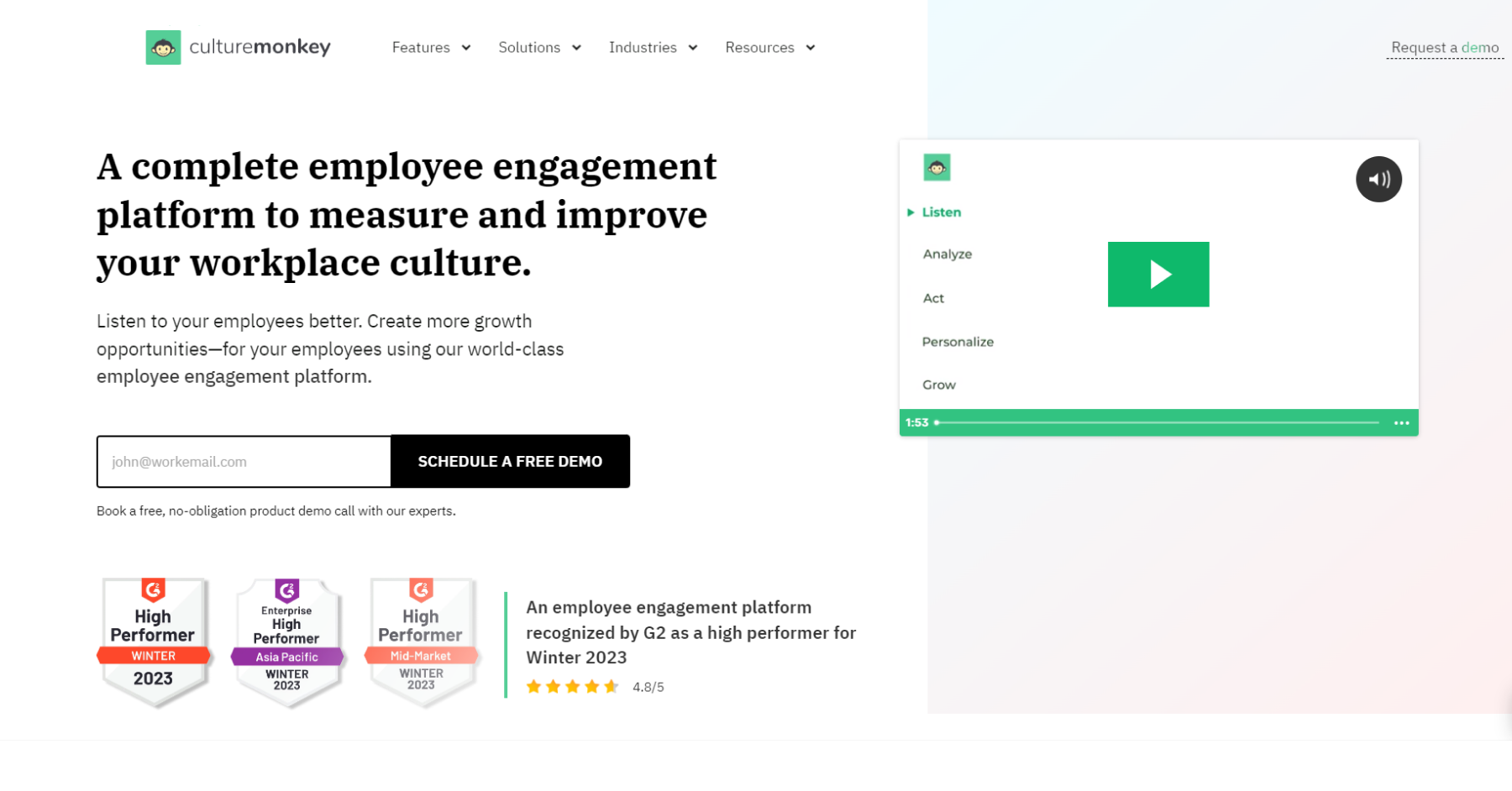
CultureMonkey is a robust HR tool designed to measure and enhance employee engagement throughout their lifecycle. It offers a comprehensive range of features that empower organizations to set, track, and analyze engagement goals.
With over 100 meticulously researched survey templates, CultureMonkey enables HR leaders to gain valuable insights into their workforce's sentiment and experiences.
One standout feature is the ability to send fully customizable, multi-lingual employee surveys. This functionality facilitates high participation rates from both blue-collar and white-collar employees, fostering a comprehensive understanding of workplace dynamics.
The employee lifecycle module ensures continuous listening from onboarding to separation, aiding in predicting attrition and taking proactive measures. Pulse surveys provide real-time feedback, offering a dynamic understanding of workplace culture and employee sentiments.
CultureMonkey's advanced engagement metrics assess 15+ drivers, encompassing work-life balance, mental health, leadership, recognition, and more. Powered by GPT technology, the platform swiftly processes extensive employee feedback, generating actionable engagement analytics for informed decision-making.
Prioritizing employee privacy and security, CultureMonkey is GDPR compliant, ensuring anonymous feedback collection, analytics, and reporting. Its seamless integration with various business tools, including Zoho People, Darwin Box, Keka HR, and Workday, adds flexibility and convenience to the engagement assessment process.
Learn more about CultureMonkey
2. Qualtrics
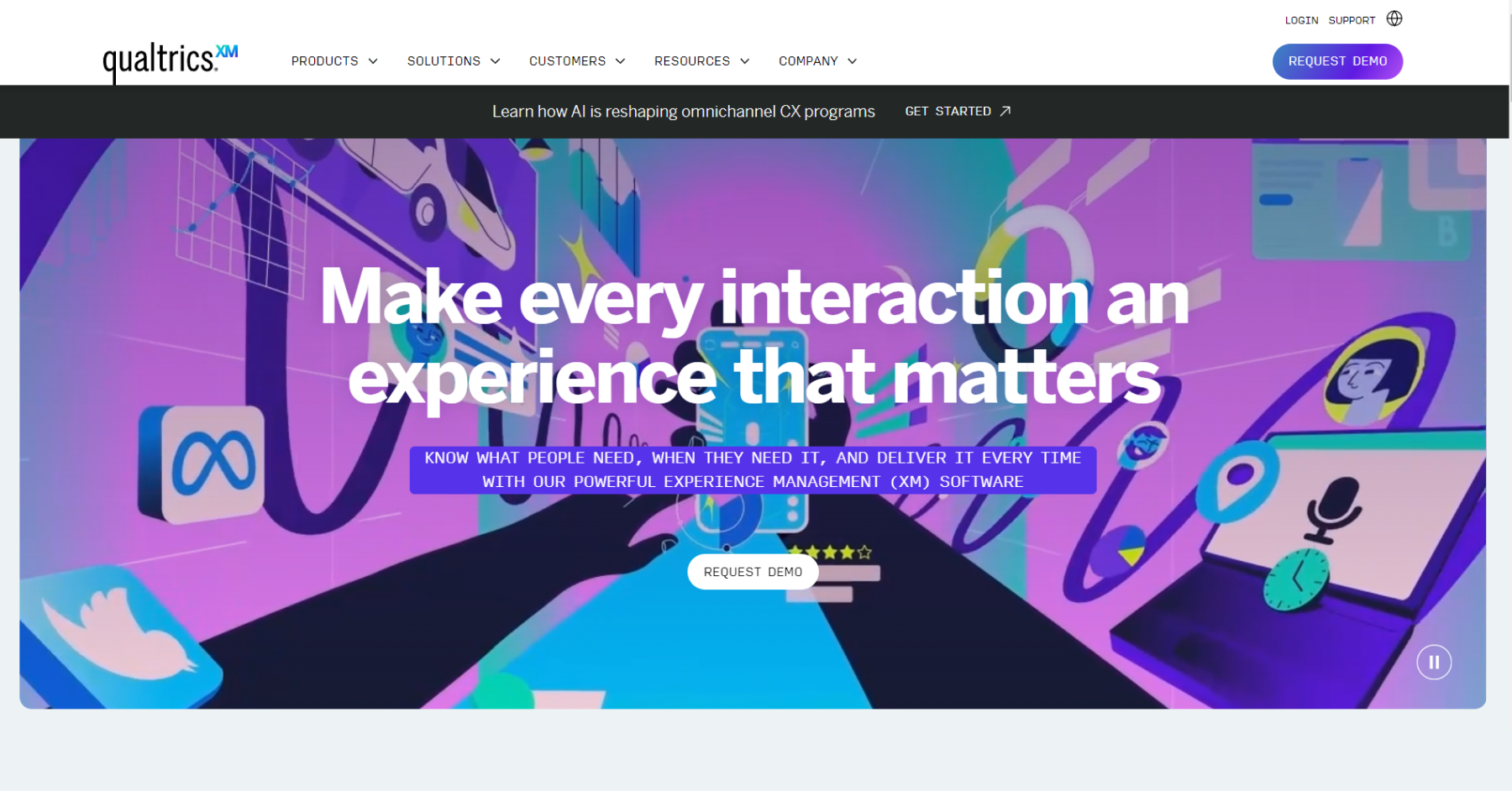
Qualtrics is an employee experience platform that includes features for measuring and improving employee engagement. It enables HR teams to design and distribute surveys, gather feedback, and analyze results to gain a deep understanding of employee sentiment.
With real-time analytics and predictive insights, Qualtrics empowers organizations to proactively address engagement issues and create strategies for fostering a positive workplace culture. This tool's holistic approach helps organizations drive higher levels of engagement and productivity.
Learn more about Qualtrics
3. Culture Amp
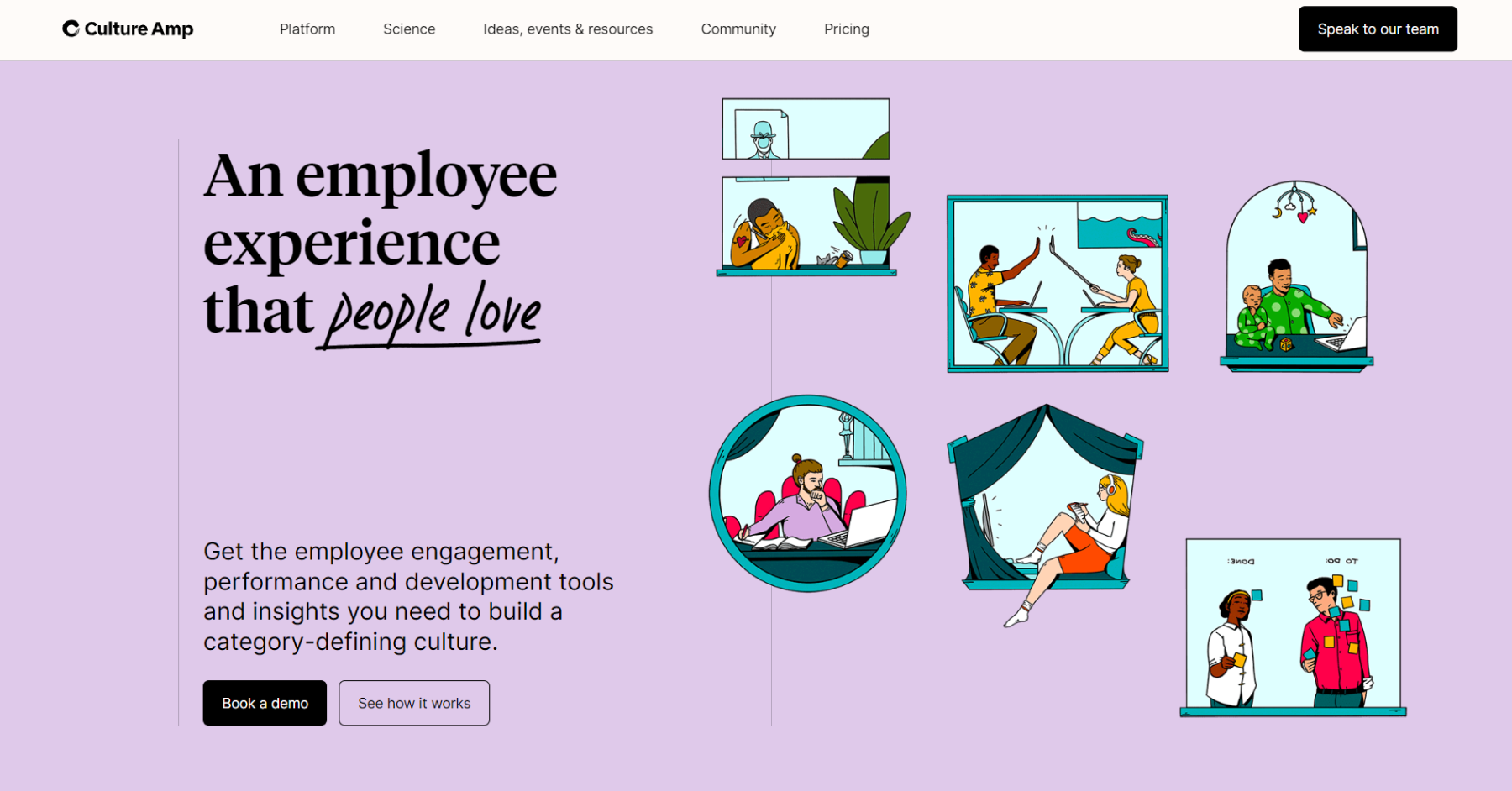
Culture Amp specializes in employee feedback and engagement analytics, offering a comprehensive platform for measuring and improving workplace culture. HR professionals can create customized surveys, gather actionable insights, and track engagement metrics over time.
Culture Amp's data-driven approach helps organizations understand the factors influencing employee engagement, enabling them to make informed decisions to enhance employee satisfaction, retention, and performance.
Learn more about Culture Amp
4. TINYpulse
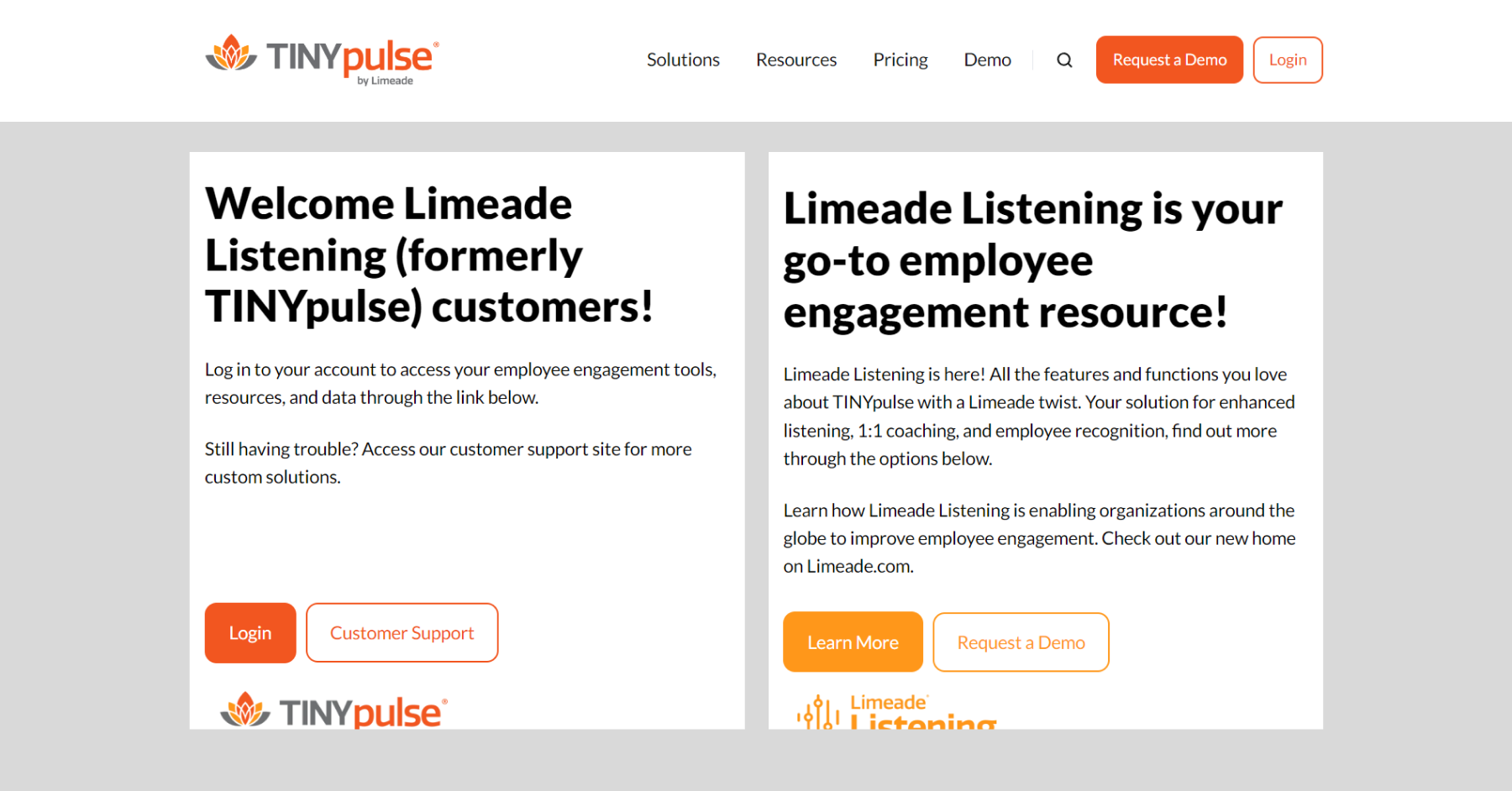
TINYpulse is an employee engagement platform that focuses on real-time feedback and continuous improvement. Through regular pulse surveys and anonymous employee feedback, TINYpulse enables HR teams to gauge employee sentiment and identify areas for enhancement.
The platform's user-friendly interface and customizable features make it easy to track engagement trends and gather actionable insights. TINYpulse promotes open communication, giving organizations the tools they need to create a culture of transparency and empowerment.
Learn more about TINYpulse
5. Officevibe
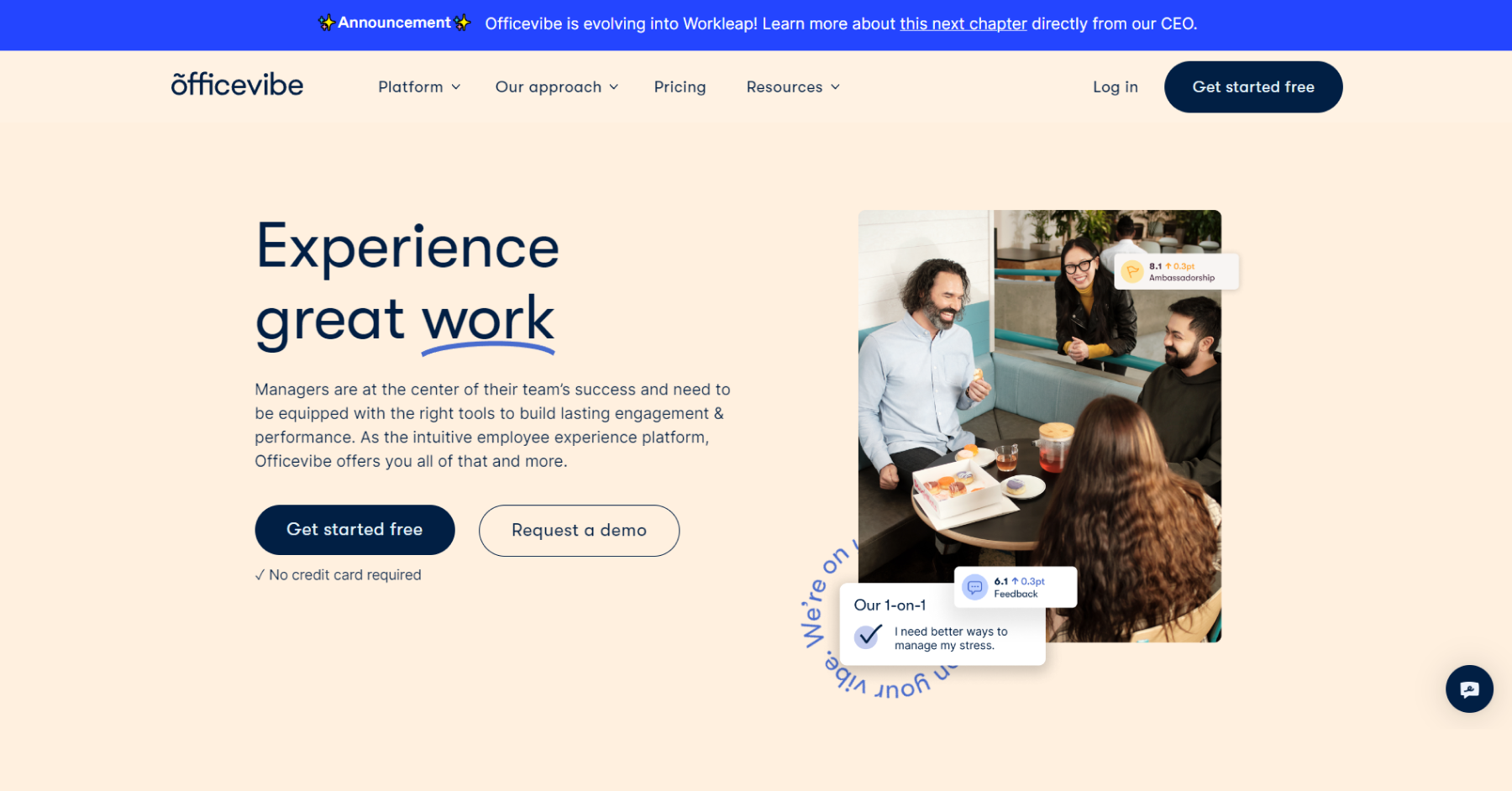
Officevibe is an employee engagement platform that enables organizations to measure and improve workplace satisfaction. Through regular pulse surveys and feedback collection, Officevibe provides insights into employee sentiment and identifies areas for enhancement.
The platform's data-driven approach empowers HR professionals to address engagement issues, foster a positive work environment, and drive productivity. Officevibe's user-friendly interface and actionable analytics make it a valuable tool for organizations seeking to boost employee engagement and overall company performance.
Learn more about Officevibe
6. Quantum Workplace
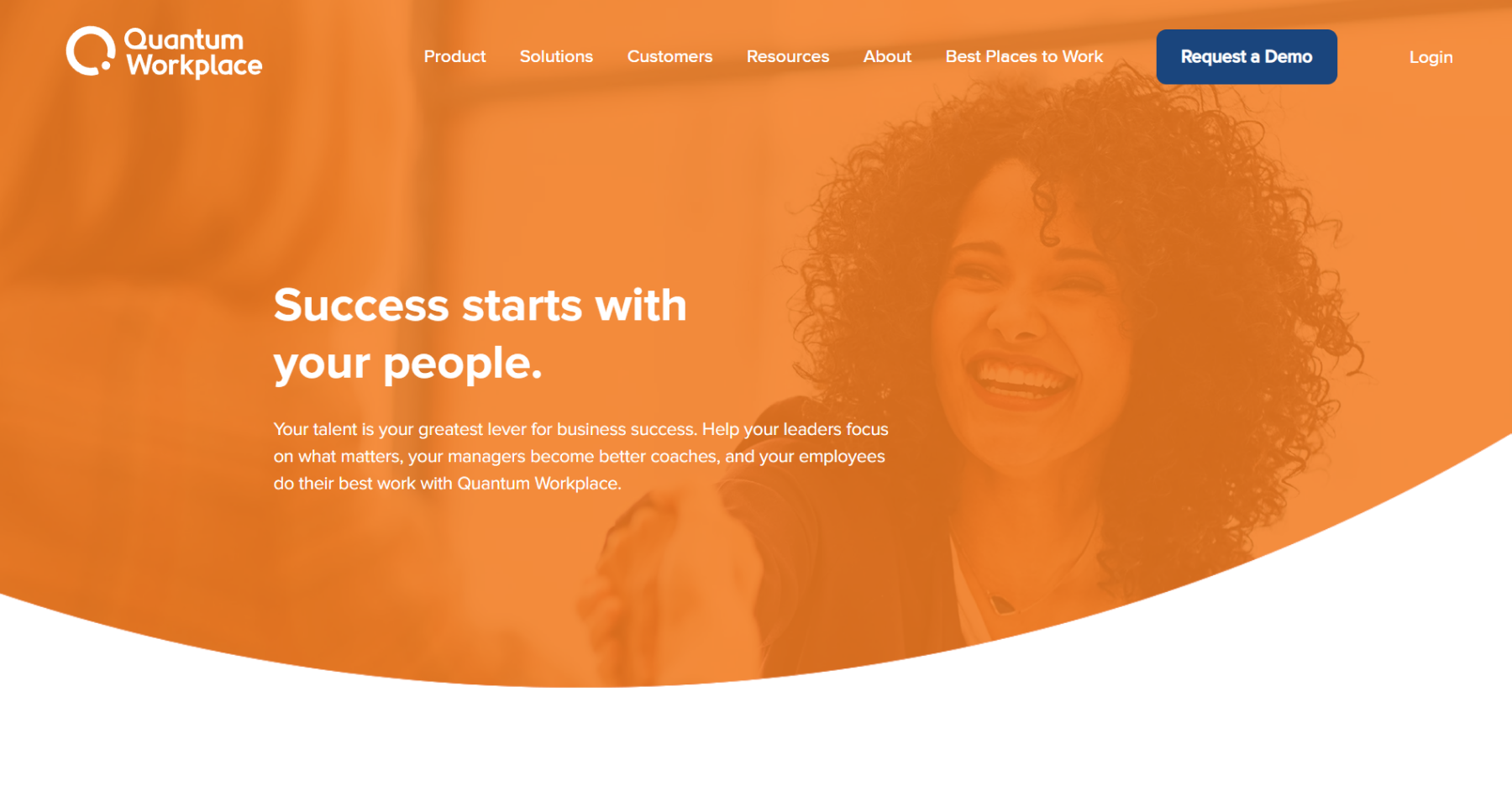
Quantum Workplace offers a robust suite of tools for measuring and enhancing employee engagement. Its comprehensive platform includes features such as surveys, feedback collection, and performance management.
Through its data-driven insights, Quantum Workplace enables HR teams to understand workplace dynamics, identify trends, and implement strategies for improvement. The platform's focus on continuous feedback and employee development contributes to a culture of engagement and growth within organizations.
Learn more about Quantum Workplace
7. SurveyLab
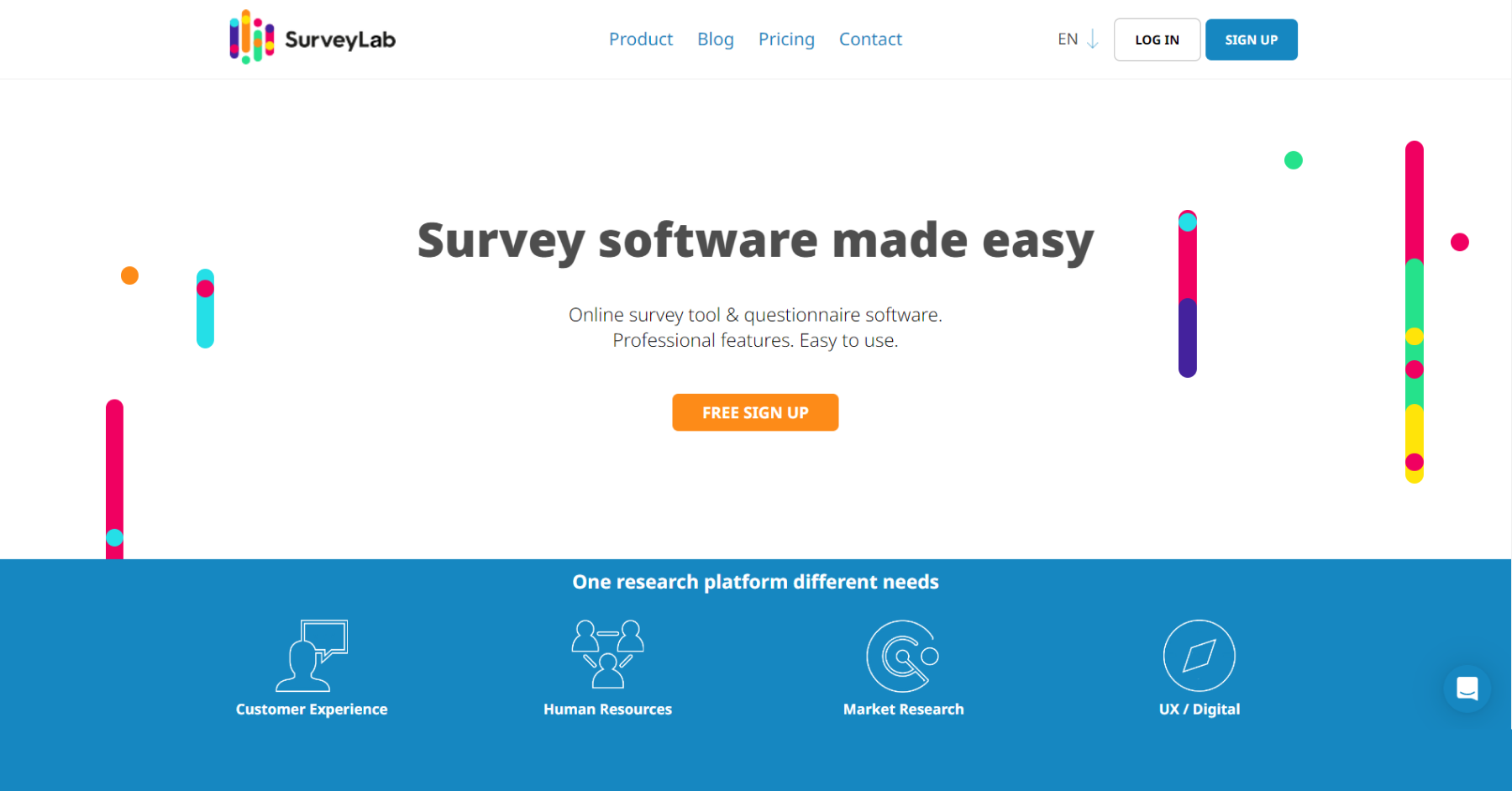
SurveyLab is a versatile survey and feedback platform that can be utilized for measuring employee engagement. With its customizable surveys and reporting capabilities, SurveyLab allows HR professionals to gather insights into employee satisfaction and sentiment.
The platform's flexibility enables organizations to tailor surveys to their specific needs, ensuring that engagement metrics are accurately captured. SurveyLab's user-friendly interface and analytics tools make it an effective solution for organizations seeking to understand and enhance employee engagement.
Learn more about SurveyLab
HR tools for recruitment
8. Workable
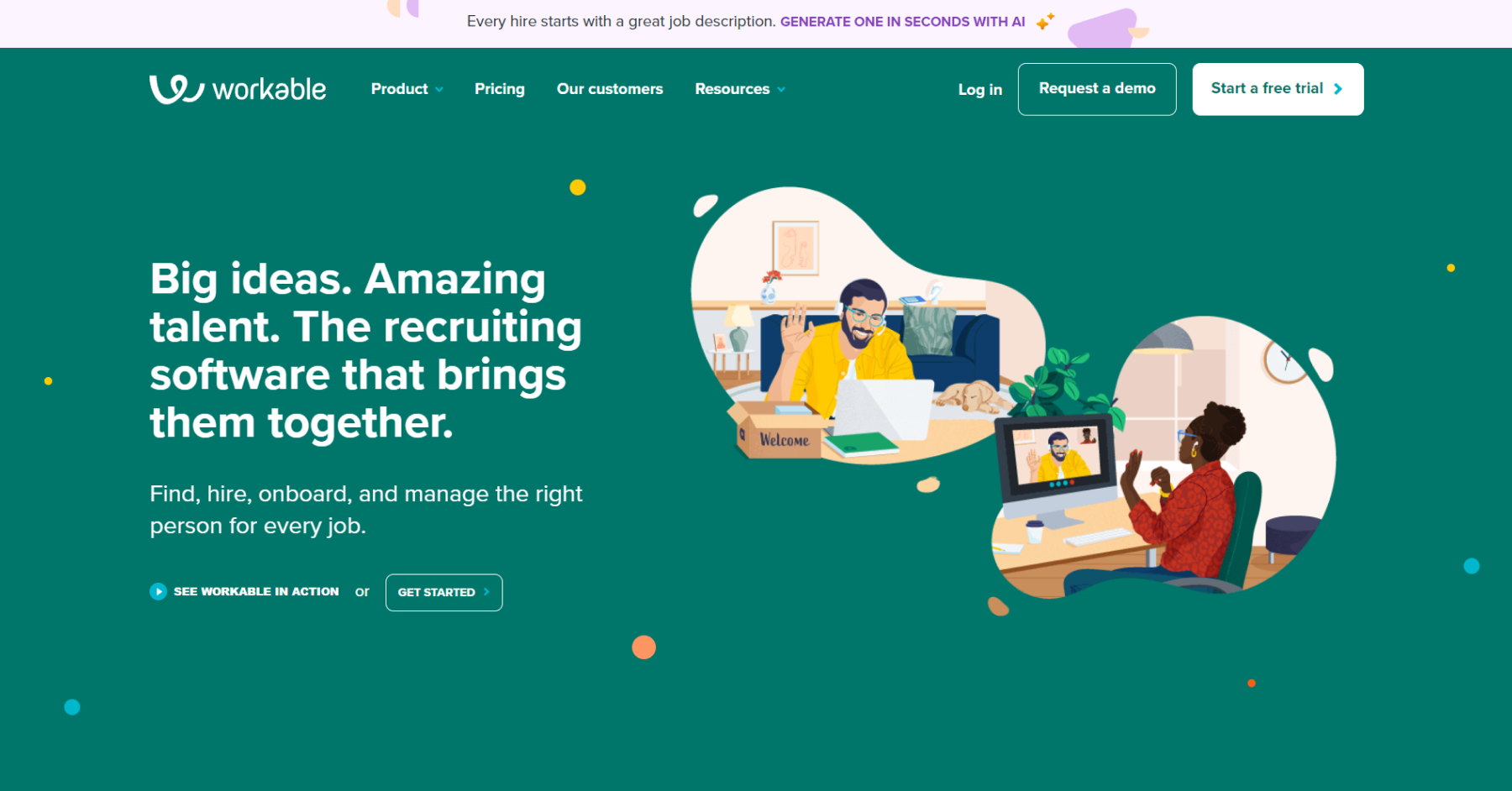
Workable is a robust and efficient recruiting software designed to simplify the end-to-end hiring process. With Workable, HR professionals can seamlessly navigate the complexities of recruitment, from creating compelling job listings to managing candidate pipelines with ease.
Its user-friendly interface and powerful features facilitate candidate sourcing, evaluation, and selection, enabling teams to make informed and timely hiring decisions. Workable's integrated approach ensures the recruitment journey is streamlined, collaborative, and highly effective.
Learn more about Workable
9. Greenhouse
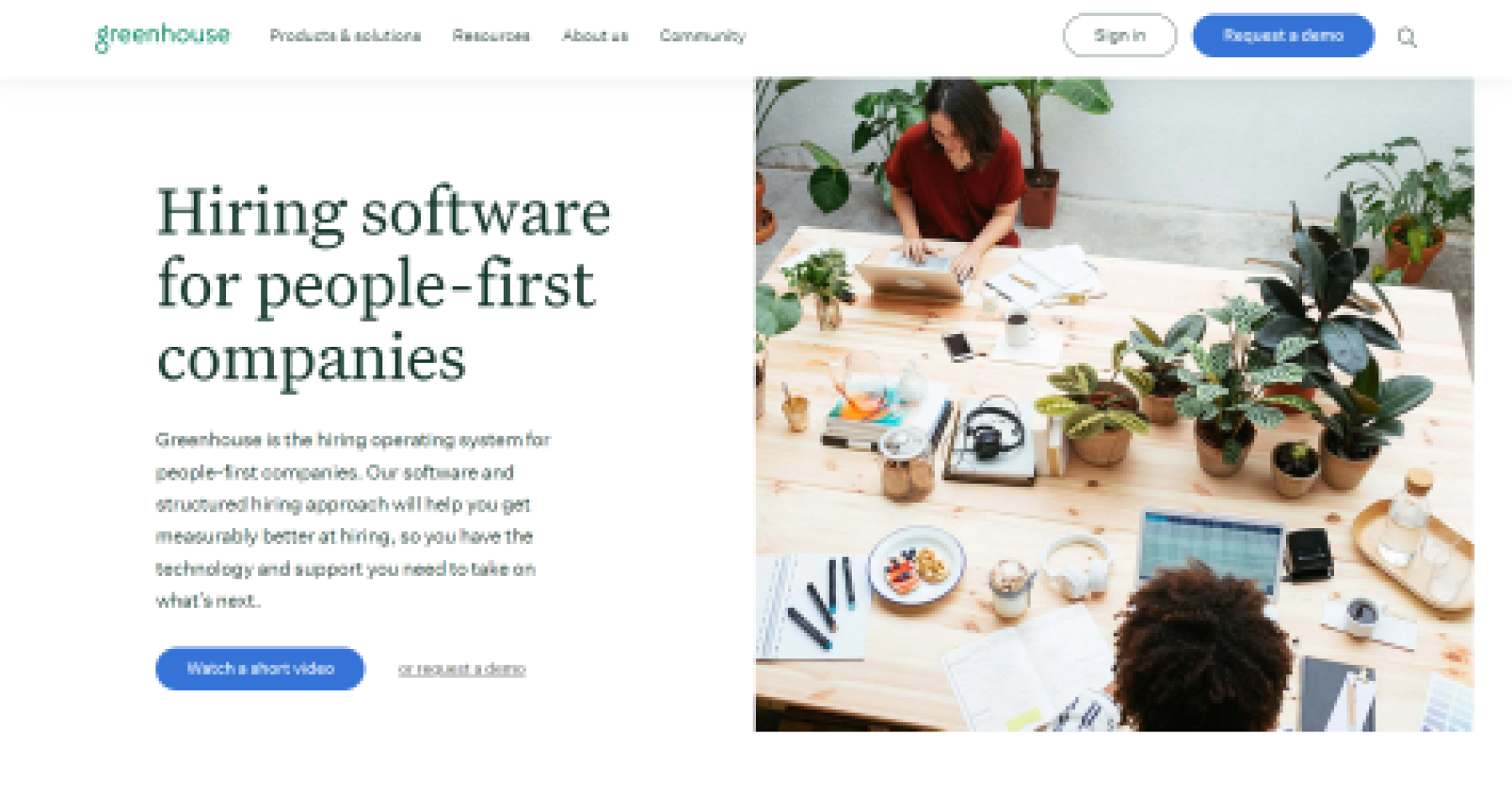
Greenhouse is a comprehensive applicant tracking system (ATS) that empowers HR teams to take control of their recruitment efforts. Through Greenhouse, organizations can effortlessly manage job postings, track candidate interactions, and make collaborative hiring decisions.
Its intuitive interface and customizable workflows enable recruiters to stay organized and engaged throughout the hiring process. Greenhouse facilitates data-driven recruitment strategies, helping HR professionals identify top talent and build high-performing teams while enhancing the overall candidate experience.
Learn more about Greenhouse
10. LinkedIn Talent Solutions
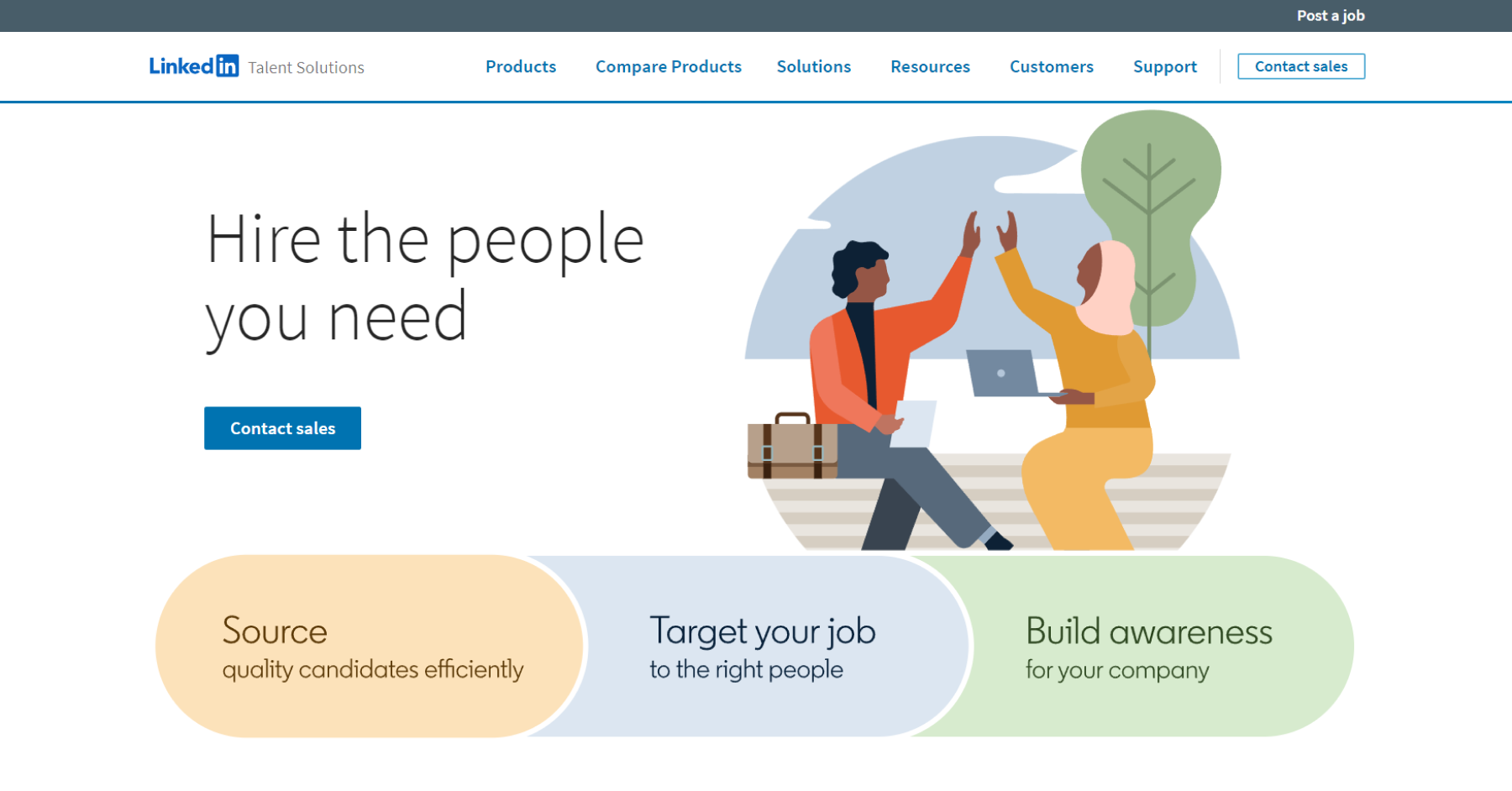
LinkedIn Talent Solutions opens the door to a vast network of potential candidates, offering recruiters a valuable platform to source, engage, and hire talent. Leveraging the extensive reach of LinkedIn, HR professionals can connect with candidates who align with their company's culture and requirements.
The platform's advanced search capabilities, coupled with personalized outreach tools, make it easier to build meaningful relationships with prospective employees. LinkedIn Talent Solutions empowers recruiters to tap into a diverse pool of candidates and make impactful hiring decisions that drive organizational success.
Learn more about LinkedIn Talent Solutions
11. Jobvite
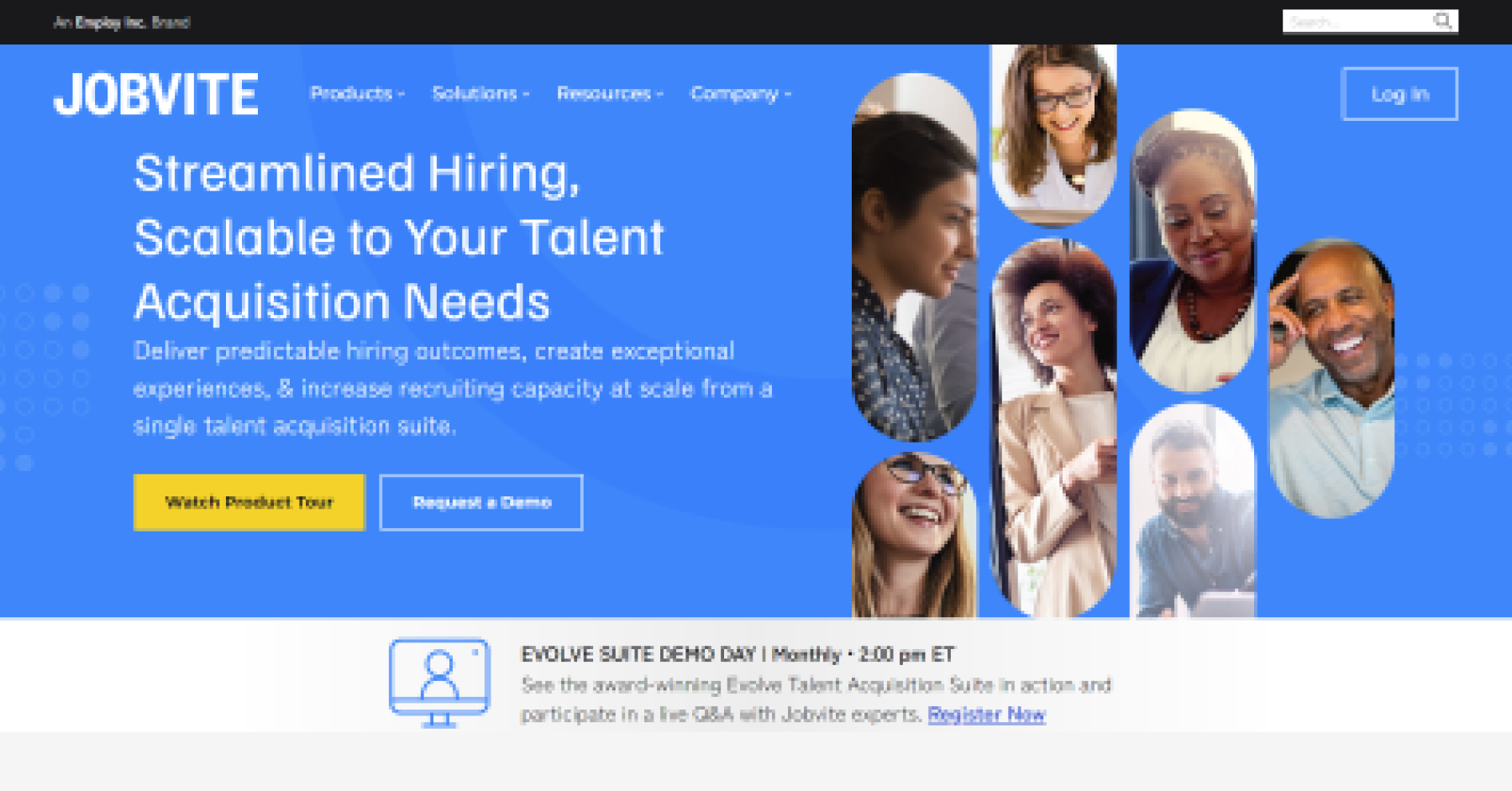
Jobvite stands out as a comprehensive recruiting software tailored to modern recruitment needs. With its emphasis on social recruiting and employee referrals, Jobvite helps HR teams attract and engage top talent within their networks.
The software's applicant tracking system streamlines the hiring process, ensuring that every candidate is managed efficiently from application to onboarding. Jobvite's analytics provide insights into recruitment performance, enabling organizations to fine-tune their strategies for maximum impact.
Learn more about Jobvite
12. Recruitee
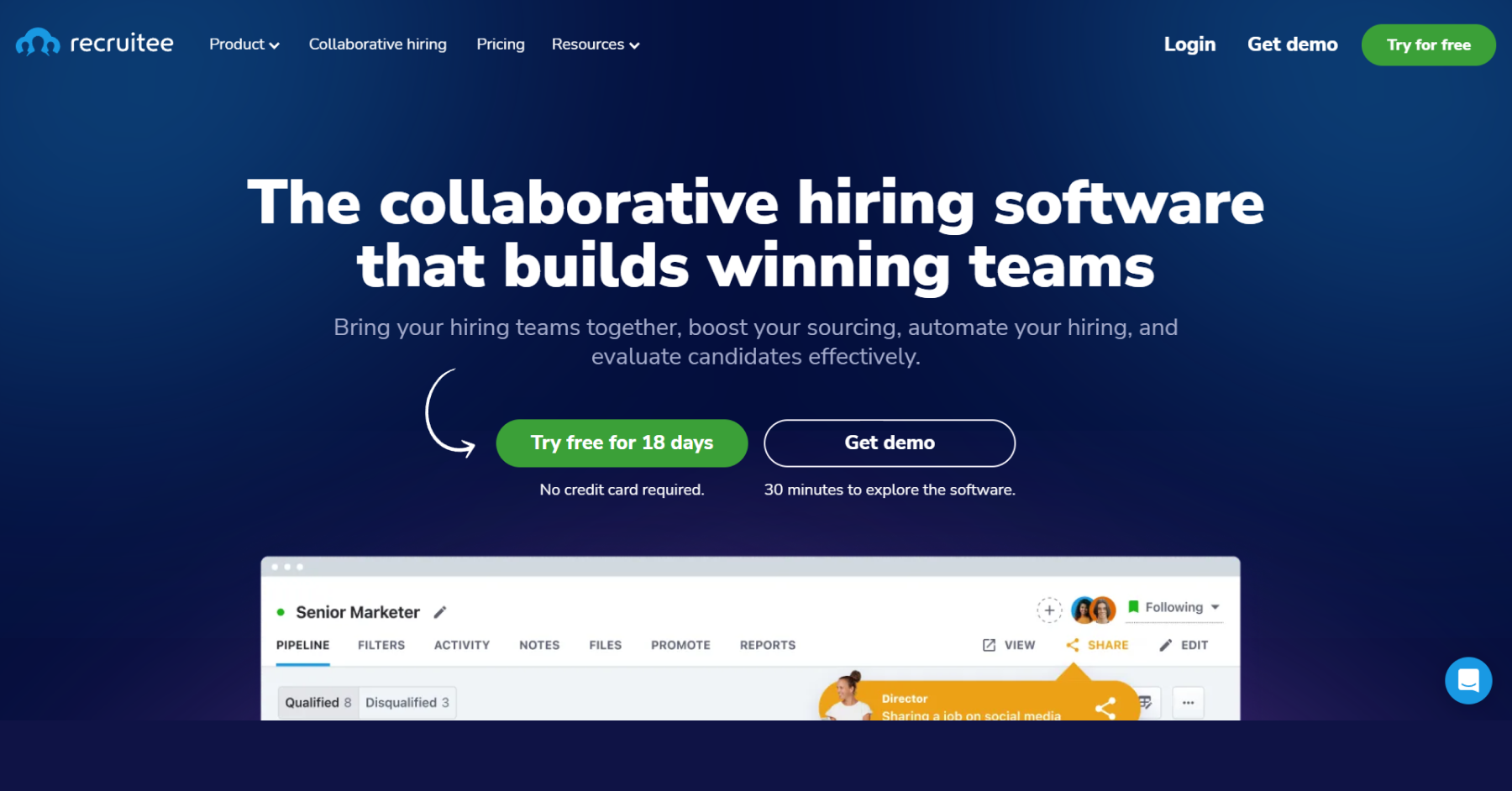
Recruitee is a user-friendly recruitment software that places collaboration and candidate engagement at the forefront. HR professionals can easily track applicants, manage communication, and foster teamwork within their hiring process.
The platform's intuitive design ensures that recruiters and hiring managers can seamlessly work together to evaluate candidates, conduct interviews, and make informed decisions. With its emphasis on simplicity and efficiency, Recruitee empowers teams to optimize their recruitment efforts while providing an exceptional candidate experience.
Learn more about Recruitee
HR tools for performance management
13. 15five
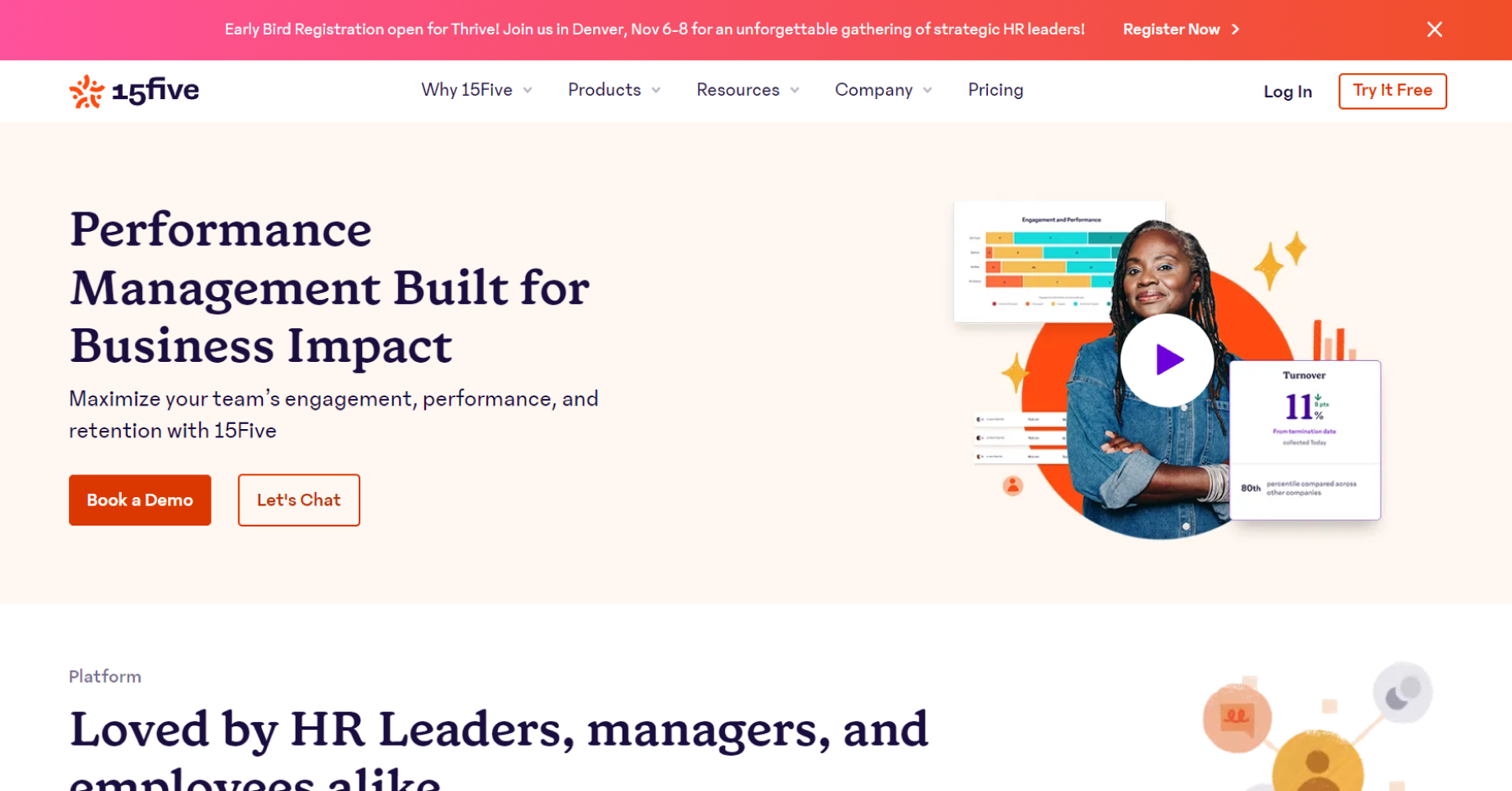
15five is a performance management tool designed to foster a culture of growth and open communication within organizations. Through 15five, HR professionals and managers can facilitate ongoing feedback, enabling employees to share their achievements, challenges, and insights on a regular basis.
This tool empowers teams to set clear goals, ensuring alignment between individual efforts and overarching company objectives. With 15five, performance reviews are transformed into meaningful conversations that inspire continuous improvement and professional development, ultimately driving employee growth and success.
Learn more about 15Five
14. Lattice
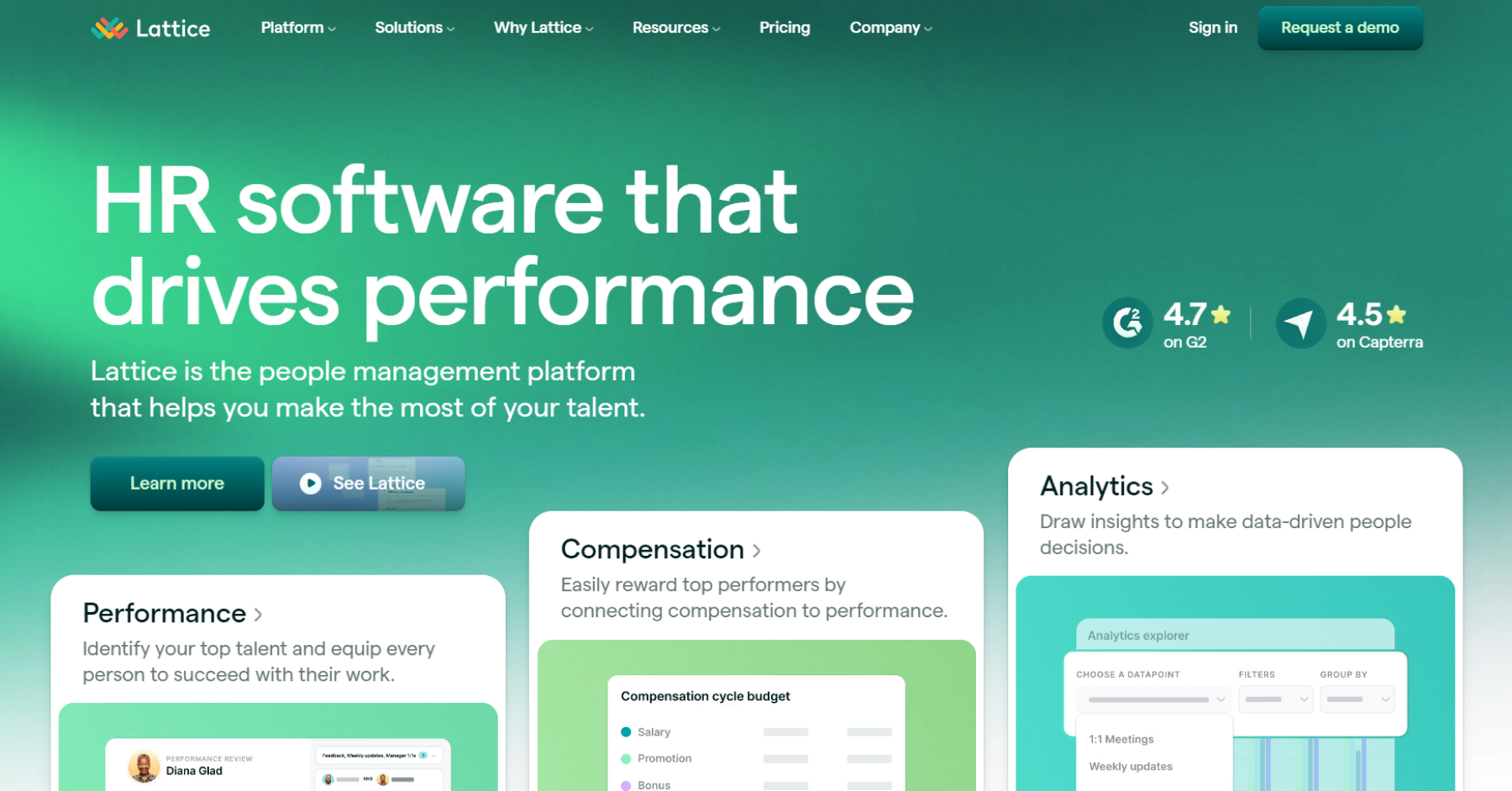
Lattice offers a comprehensive suite of tools that empowers HR teams to proactively manage and enhance employee performance. Through Lattice, organizations can seamlessly set objectives, facilitate impactful 1-on-1 meetings, and gather real-time feedback from peers and managers.
By providing a platform for continuous performance conversations, Lattice creates an environment where employees receive the guidance and support they need to excel. This tool promotes individual development, team collaboration, and organizational success by focusing on regular communication and goal-oriented interactions.
Learn more about Lattice
15. Reflektive
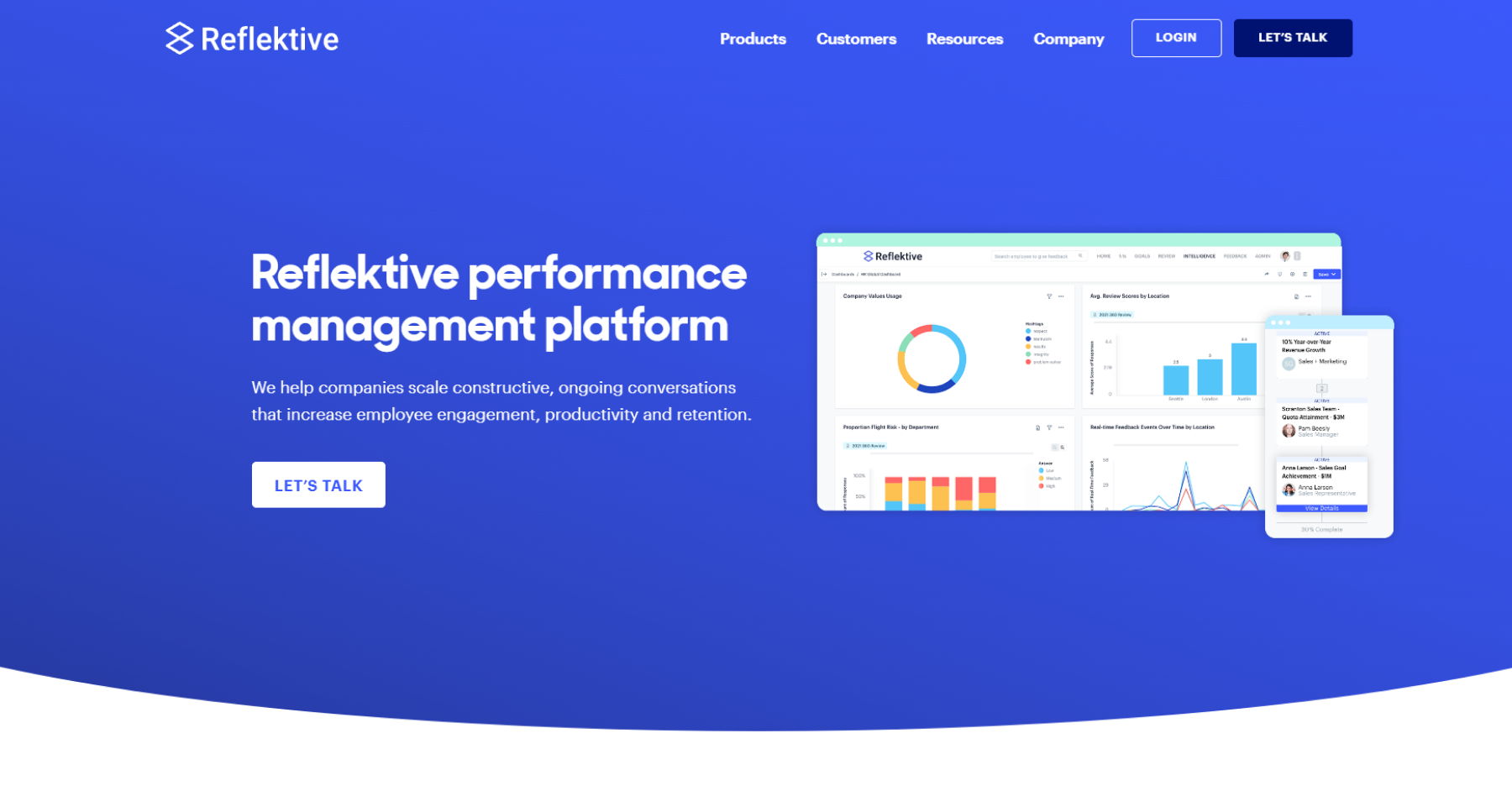
Reflektive is a performance management platform that places emphasis on creating a culture of constant growth and recognition. With Reflektive, HR professionals can facilitate structured performance reviews, enabling managers to provide constructive feedback and employees to align their goals with the company's mission.
The platform also encourages peer recognition, ensuring that exceptional contributions are acknowledged and celebrated across the organization. By promoting goal alignment and continuous improvement, Reflektive helps organizations create a motivated and engaged workforce that drives success.
Learn more about Reflektive
16. Glint
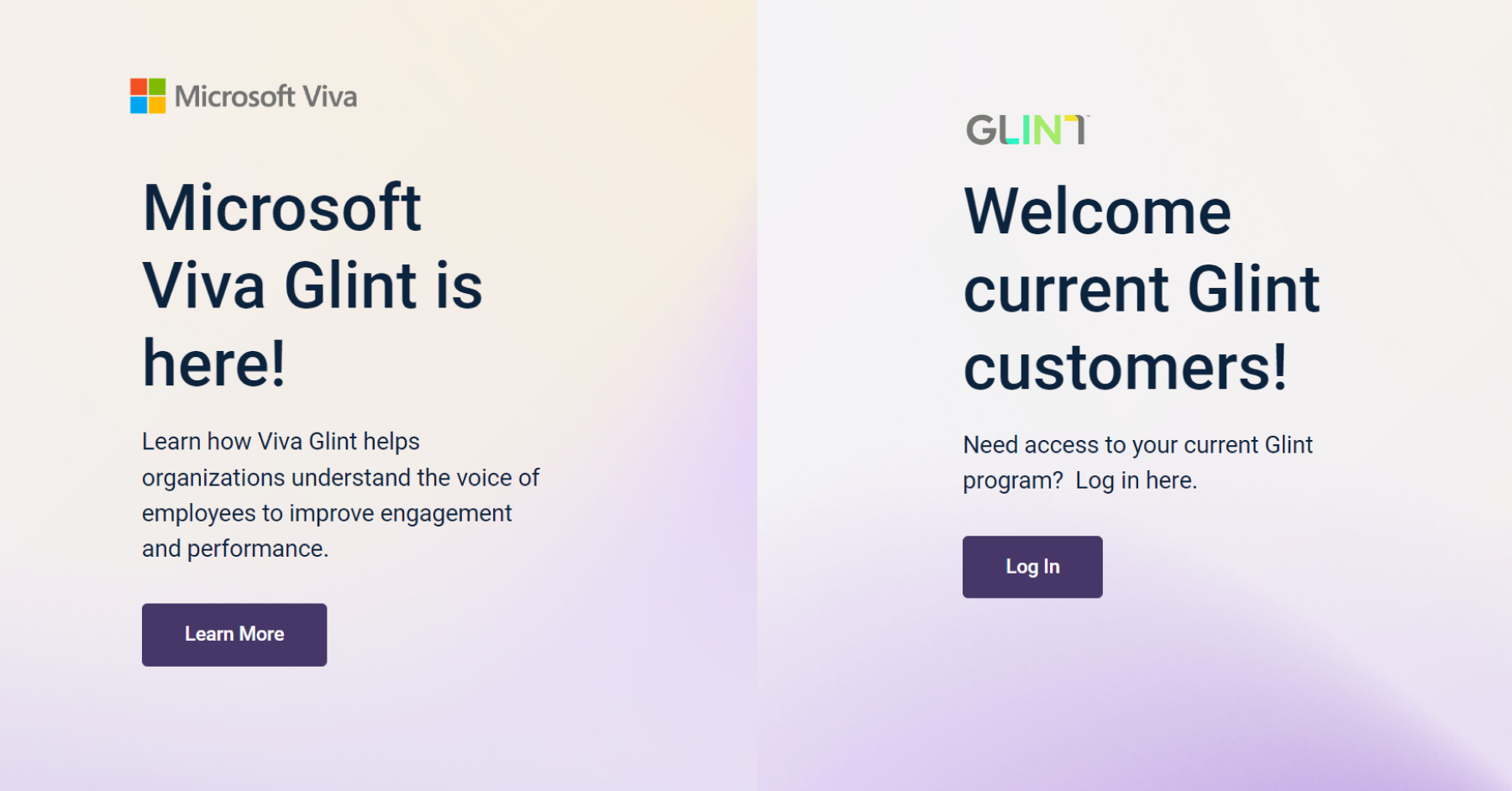
Glint specializes in employee engagement and performance analytics, offering HR teams valuable insights to optimize team dynamics and overall performance. By gathering and analyzing feedback from employees, Glint enables organizations to pinpoint areas of improvement and implement targeted strategies for enhancement.
This tool equips HR professionals with the data they need to make informed decisions, tailor development initiatives, and create an environment that fosters high levels of employee engagement and productivity.
Learn more about Glint
17. BambooHR Performance Management
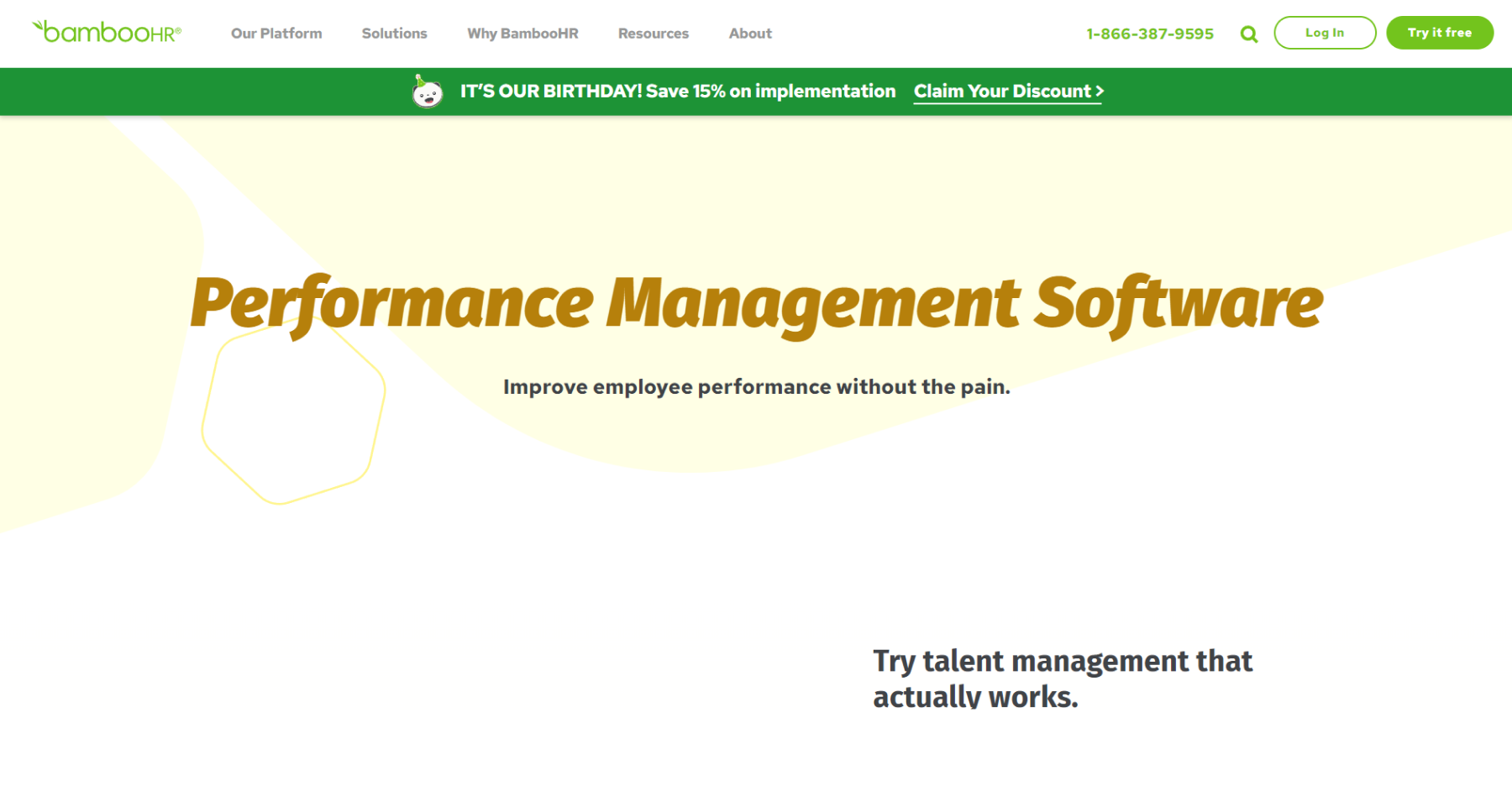
BambooHR's module is a comprehensive solution that empowers HR teams to effectively manage and nurture employee performance. Through BambooHR, organizations can set clear performance goals, conduct thorough evaluations, and provide regular feedback to employees.
The tool's user-friendly interface and customizable features make it easy for HR professionals to track employee progress, identify strengths and areas for improvement, and create actionable development plans. BambooHR Performance Management helps organizations cultivate a culture of continuous improvement and professional growth, driving both individual and collective success.
Learn more about BambooHR Performance Management
HR tools for training and development
18. Cornerstone OnDemand
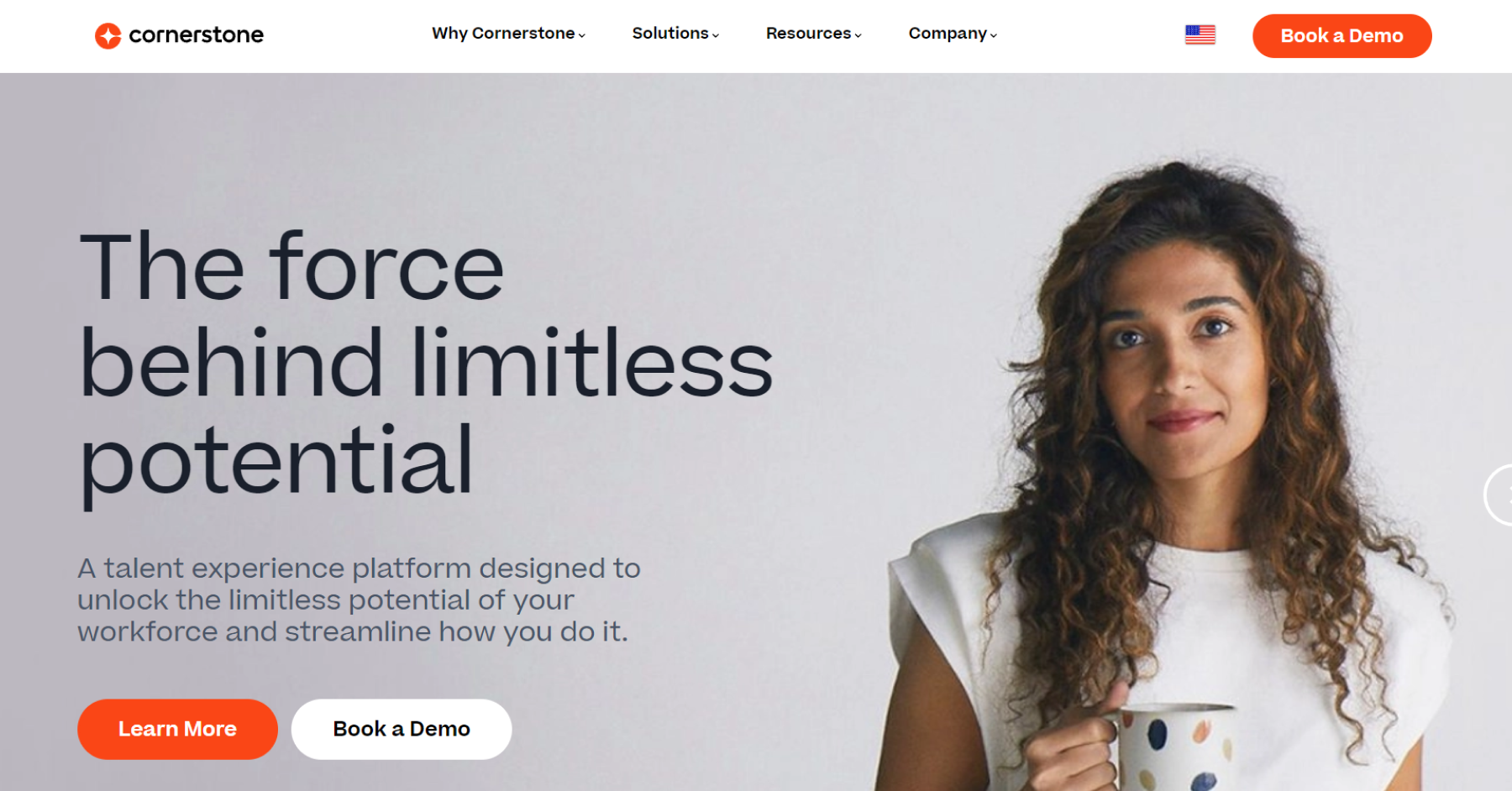
Cornerstone OnDemand is a comprehensive and versatile learning management system (LMS) that equips HR professionals with the tools to enhance employee training and development. With Cornerstone OnDemand, HR teams can effortlessly create and deliver engaging training programs tailored to their organization's needs.
The platform facilitates easy content creation, seamless course delivery, and progress tracking, enabling employees to acquire new skills and knowledge effectively. By providing a centralized hub for learning initiatives, Cornerstone OnDemand empowers organizations to cultivate a culture of continuous learning and professional growth.
Learn more about Cornerstone OnDemand
19. TalentLMS
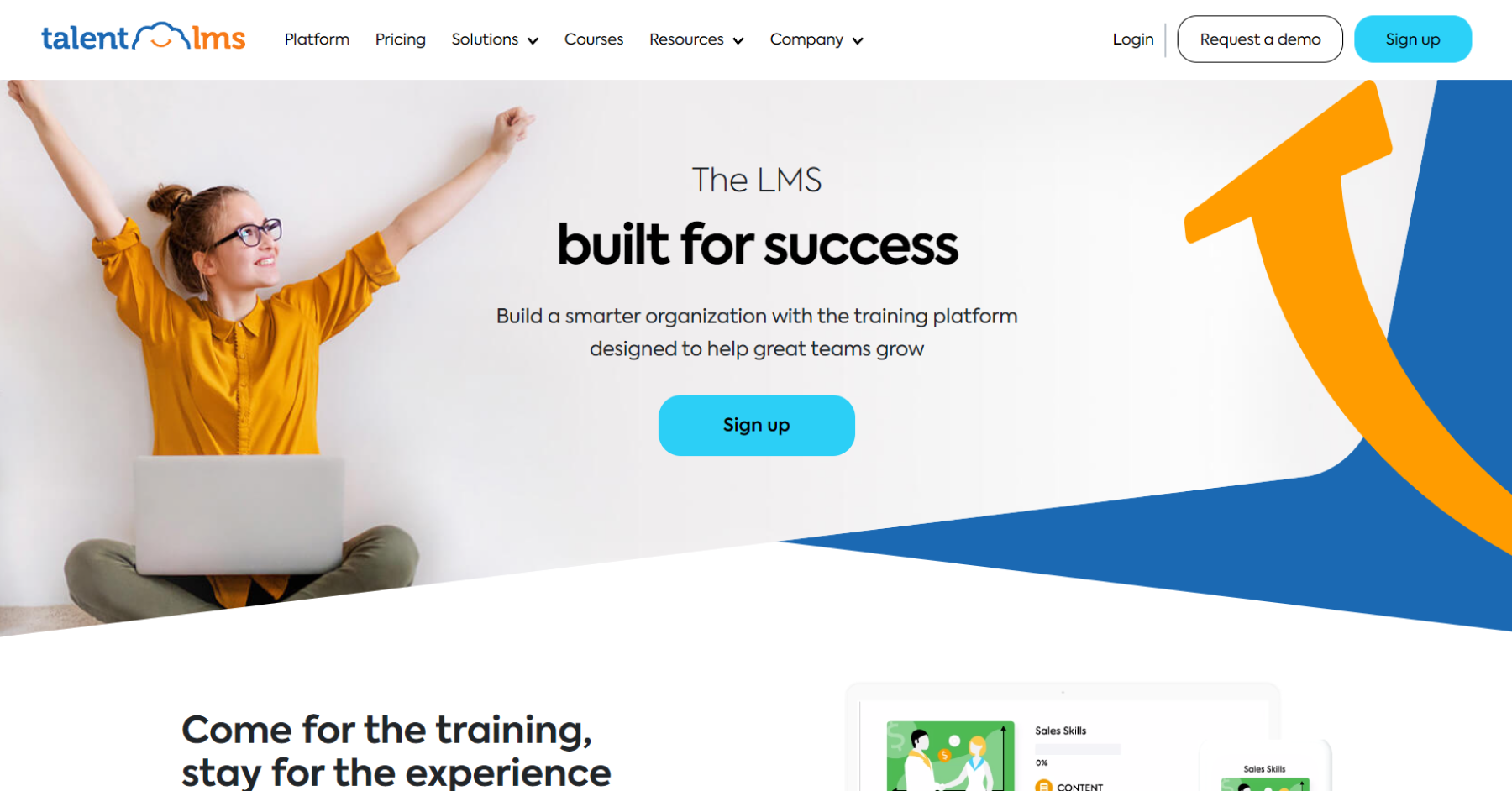
TalentLMS is a user-friendly platform designed to streamline the process of creating, managing, and delivering online courses. HR professionals can easily design engaging training content, monitor employee progress, and assess learning outcomes.
The platform's intuitive interface ensures that even non-technical users can develop interactive courses with multimedia elements. With its robust reporting and analytics features, TalentLMS enables HR teams to measure the effectiveness of training programs and make data-driven decisions to further enhance employee development.
Learn more about TalentLMS
20. Bridge

Bridge offers a unique blend of learning management and performance development tools, creating a holistic platform that enhances both employee skills and career growth. Through Bridge, HR professionals can design and deliver engaging learning experiences, while also providing career development resources such as skill assessments and goal-setting features.
The platform's focus on continuous learning and performance improvement ensures that employees are equipped with the skills they need to excel in their roles and advance in their careers. By seamlessly integrating learning and career development, Bridge empowers organizations to foster a motivated and capable workforce.
Learn more about Bridge
21. GoSkills LMS
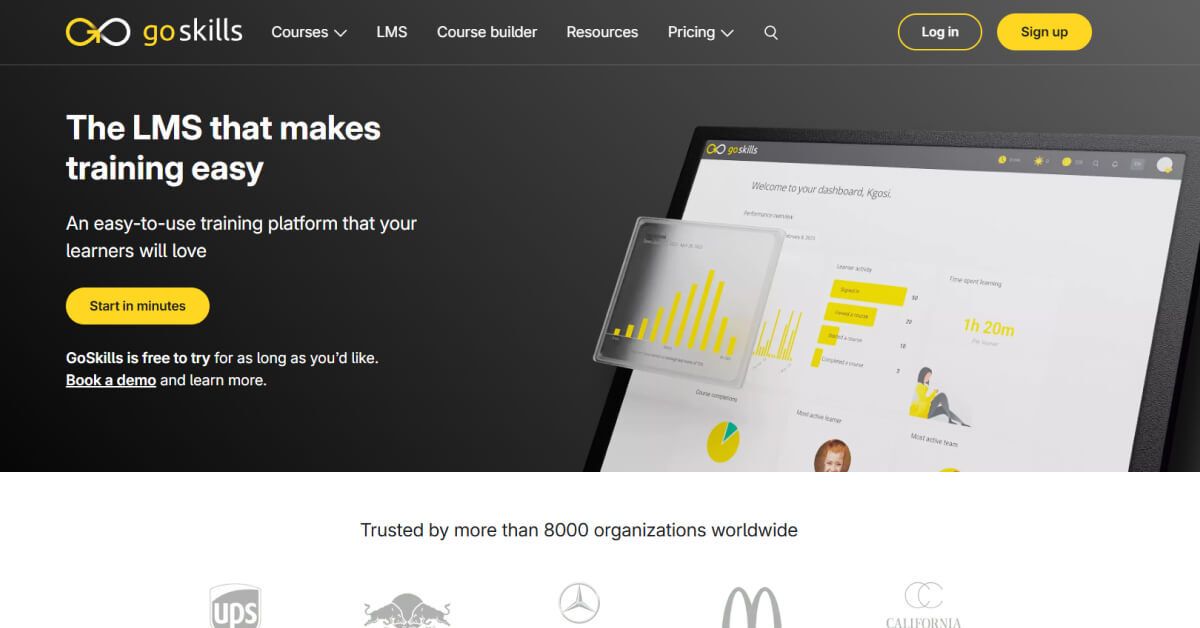
GoSkills LMS is a user-friendly platform designed to enhance teaching and learning by simplifying the creation, management, and delivery of online courses. Teachers can easily design engaging lessons, monitor student progress, and evaluate learning outcomes.
The platform's intuitive interface allows educators to create interactive courses with multimedia content, even without technical expertise. With built-in progress tracking and gamification features, GoSkills keeps students motivated while helping teachers assess the effectiveness of their lessons. Certifications upon course completion add an extra layer of achievement for students, making it a versatile choice for classrooms.
Learn more about GoSkills LMS
HR tools for people management
22. Namely
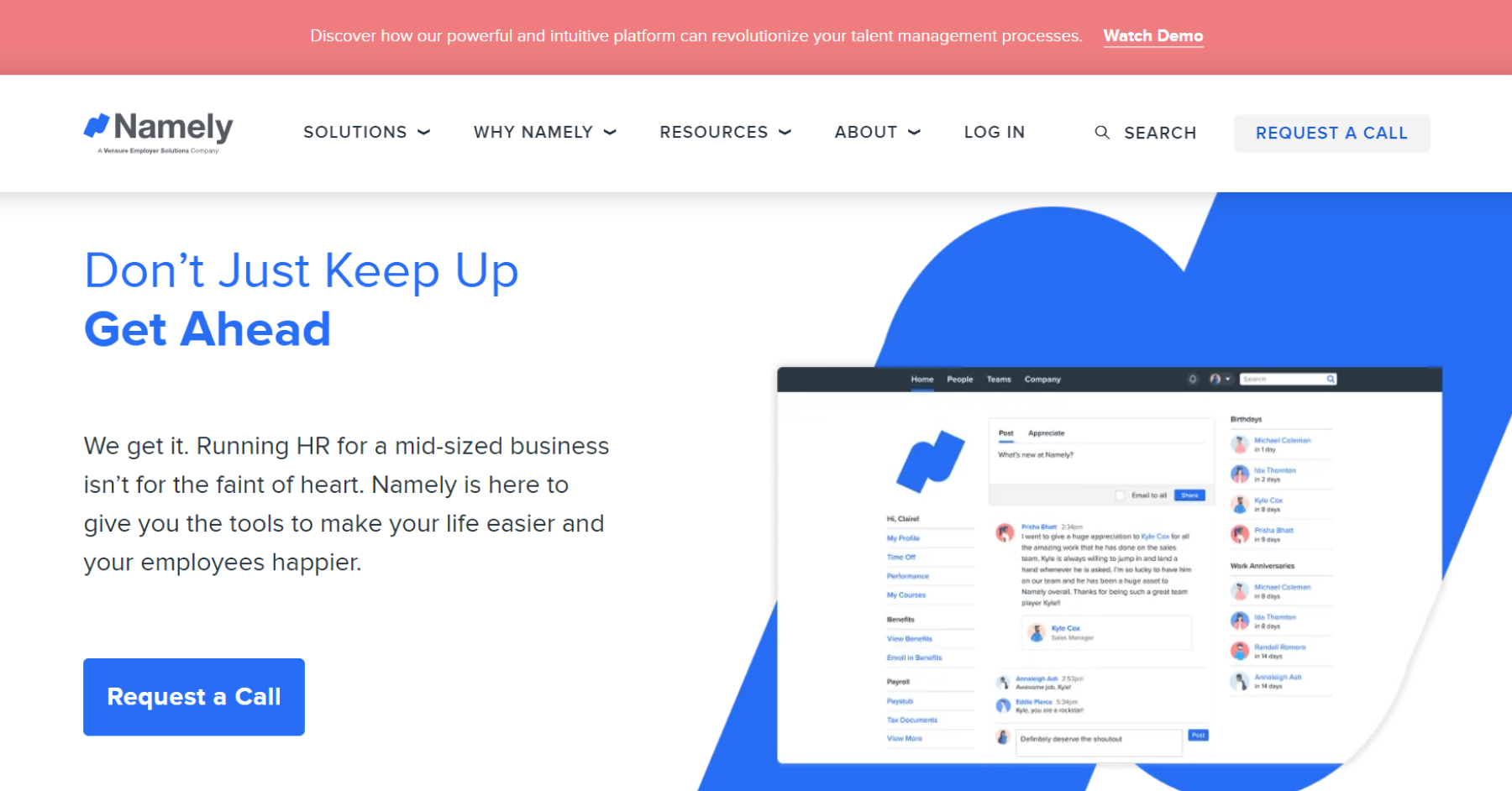
Namely is a HR platform designed to streamline people management processes. With Namely, HR professionals can efficiently handle various aspects of workforce management, including payroll, benefits administration, time tracking, and employee engagement initiatives.
This platform simplifies administrative tasks by centralizing employee data and automating critical processes. Namely's integrated approach ensures that HR teams can focus on strategic initiatives that enhance employee satisfaction, compliance, and overall organizational success.
Learn more about Namely
23. Zenefits
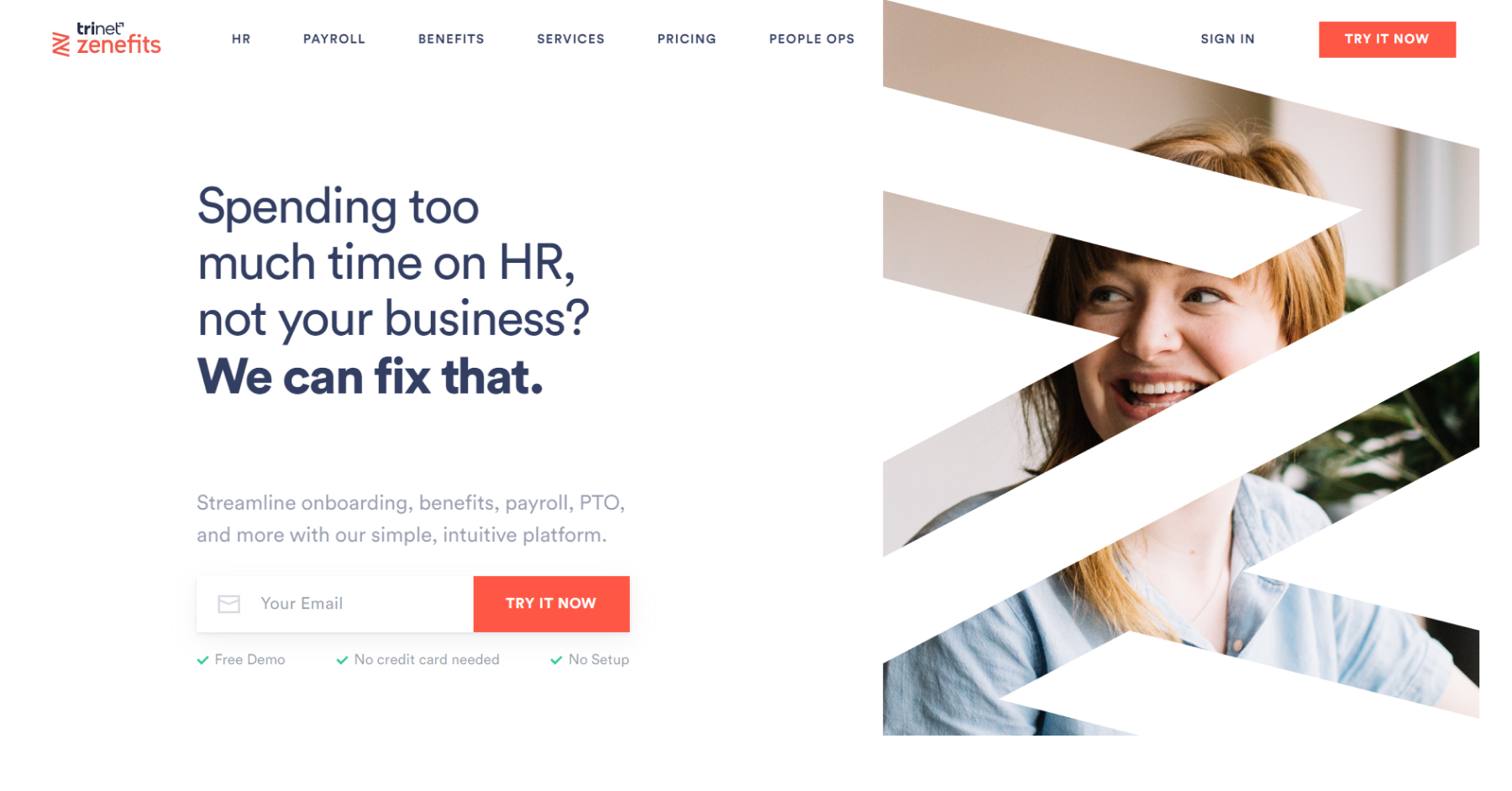
Zenefits offers a robust suite of tools designed to simplify and enhance people management for HR professionals. This all-in-one platform covers HR, payroll, benefits, and compliance, providing organizations with the tools they need to manage and support their employees effectively.
By streamlining complex processes such as payroll calculations, benefits enrollment, and regulatory compliance, Zenefits empowers HR teams to allocate more time to strategic initiatives that contribute to employee engagement and organizational growth.
Learn more about Zenefits
24. Gusto
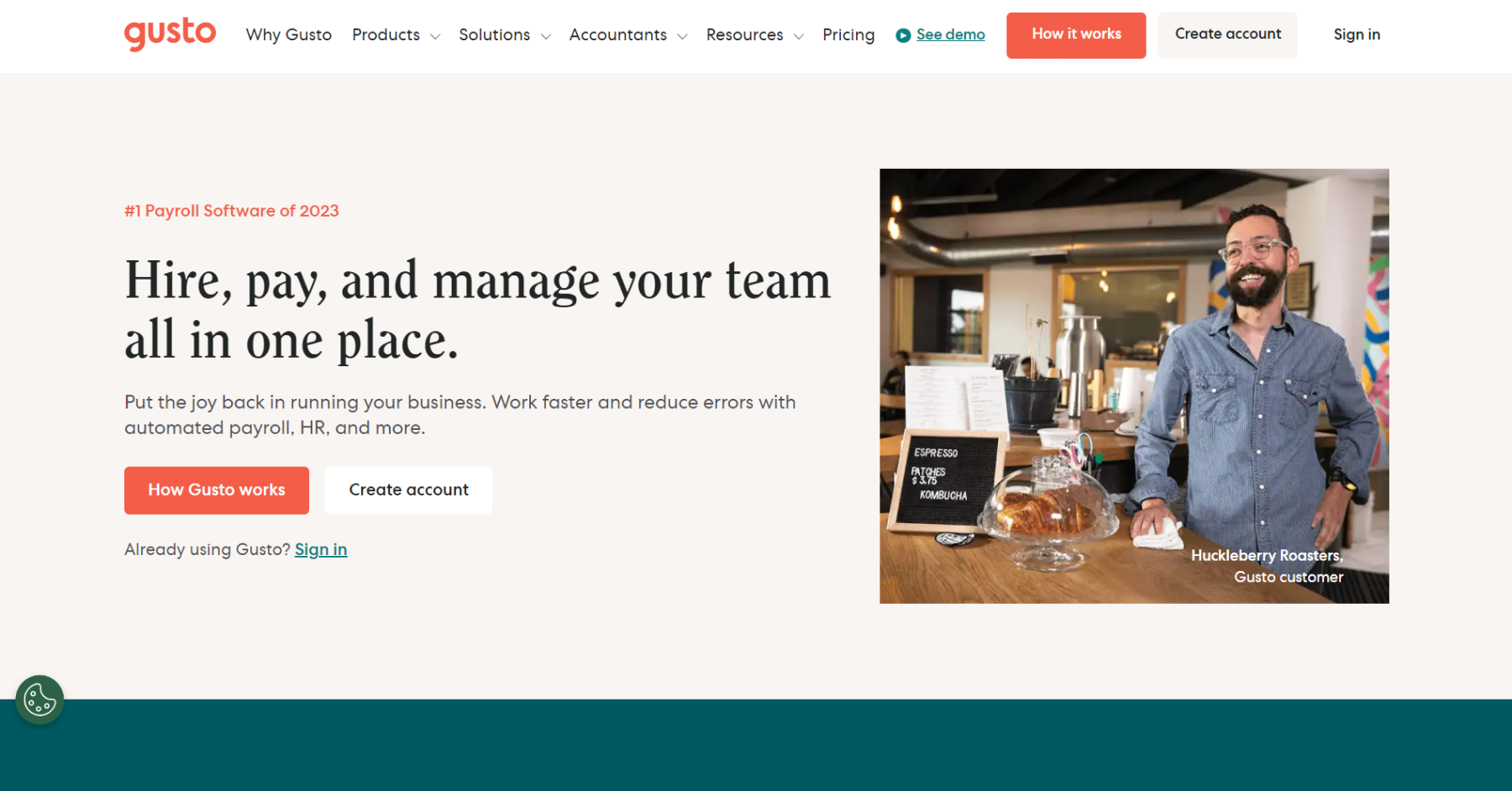
Gusto provides an integrated platform that combines payroll, benefits, compliance, and HR project management software into a single solution. This streamlined approach simplifies administrative tasks, allowing HR professionals to efficiently handle payroll processing, benefits enrollment, tax calculations, and more.
Gusto's user-friendly interface and automated features minimize the complexities associated with people management, enabling HR teams to focus on strategic initiatives that drive employee engagement, satisfaction, and organizational efficiency.
Learn more about Gusto
25. Paycor
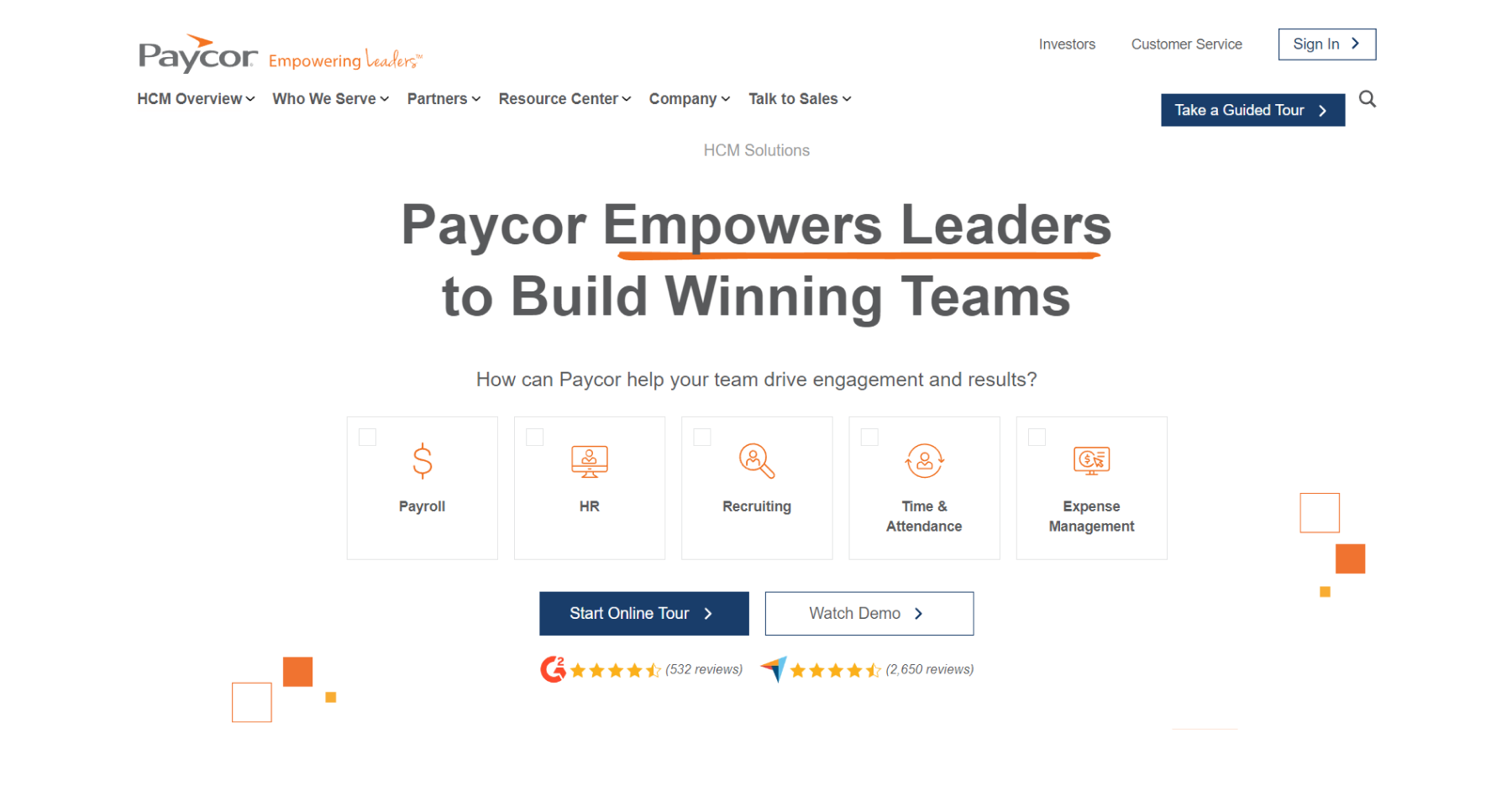
Paycor offers HR management software that addresses a wide range of people management needs. From recruiting and time and attendance tracking to benefits administration and reporting, Paycor's platform enables HR professionals to manage various aspects of workforce management from a single interface.
By providing tools that facilitate recruitment, streamline time tracking, and ensure accurate payroll processing, Paycor empowers HR teams to optimize their processes, enhance employee experiences, and make data-driven decisions.
Learn more about Paycor
HR tools for payroll management
26. ADP Workforce Now
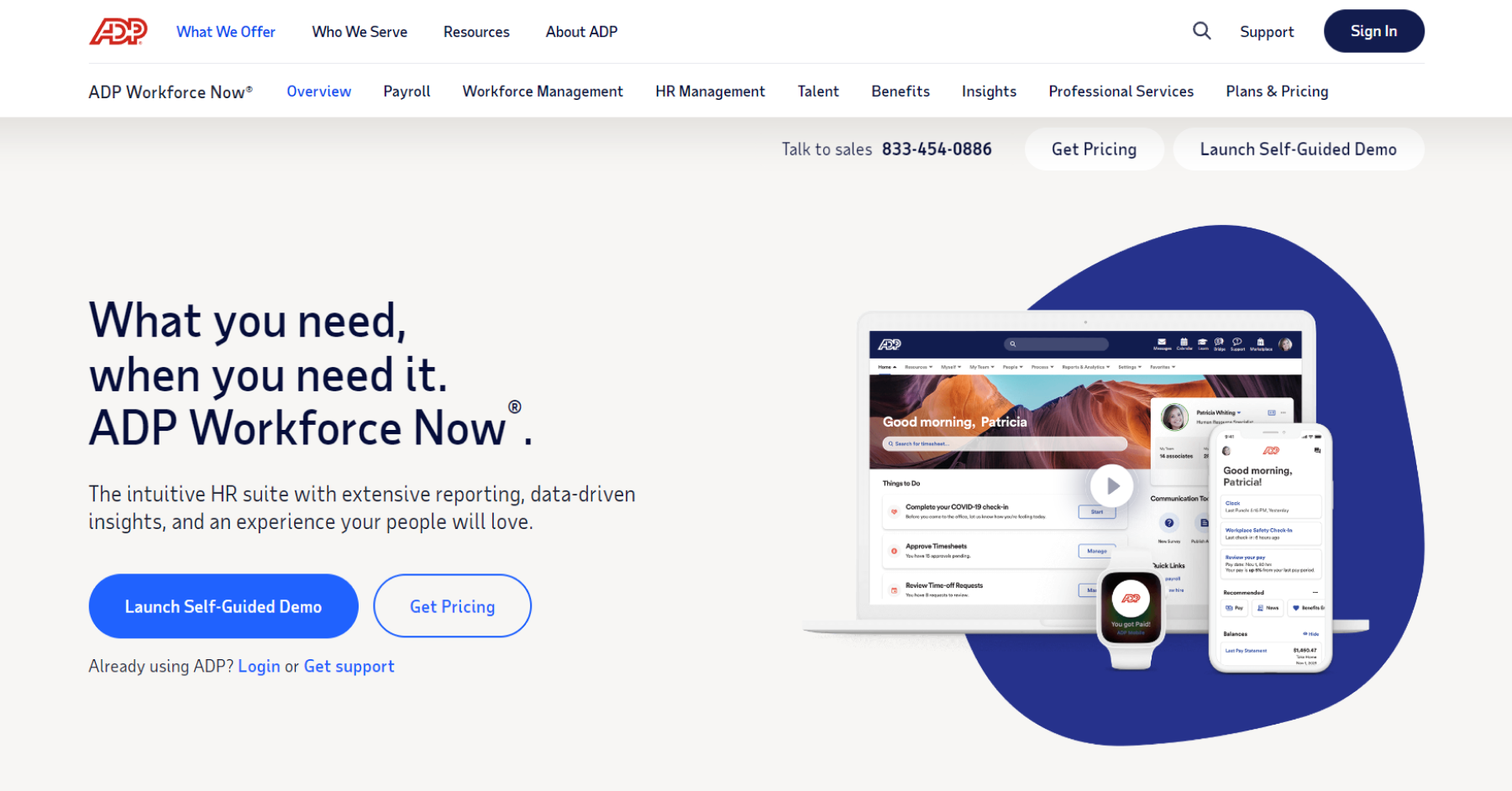
ADP Workforce Now is a cloud-based solution designed to streamline payroll software and HR administration. This comprehensive tool handles payroll processing, tax compliance, and reporting, allowing HR professionals to ensure accurate and timely payment to employees while meeting regulatory requirements.
With ADP Workforce Now, organizations can efficiently manage complex payroll tasks, track employee hours, and generate detailed reports, enabling HR teams to focus on strategic initiatives that enhance employee satisfaction and compliance.
Learn more about ADP Workforce Now
27. factoHR
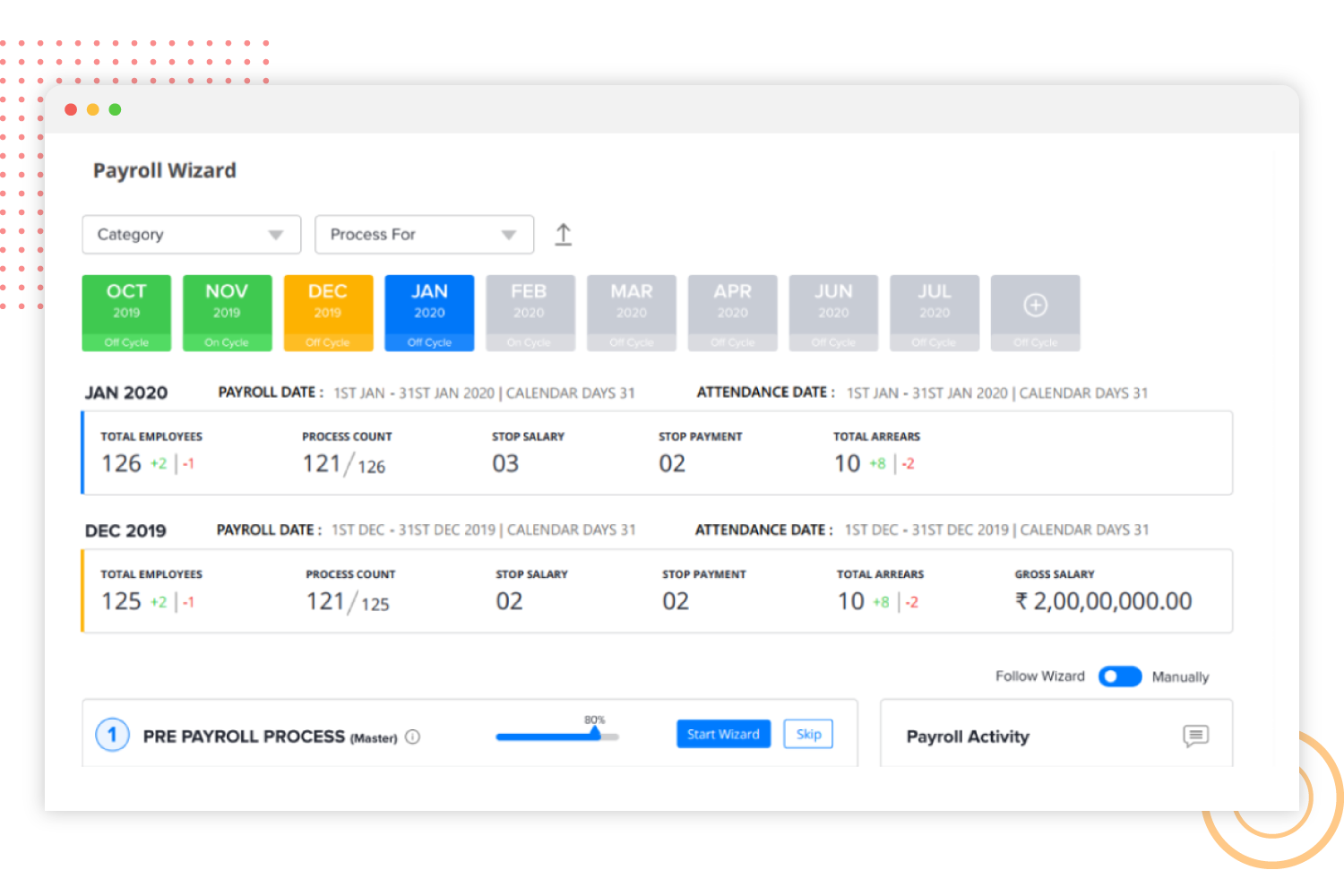
factoHR payroll software is a tool designed to streamline and manage payroll processes efficiently. It automates the calculation of employee salaries, deductions, and taxes, ensuring accuracy and compliance with relevant laws and regulations.
This software typically includes features like attendance tracking, leave management, and generating pay slips, making it a comprehensive solution for HR and payroll management.
The system also integrates seamlessly with other HR functions, such as attendance tracking and leave management, providing a unified HR management experience.
Learn more about factoHR
28. Paychex Flex
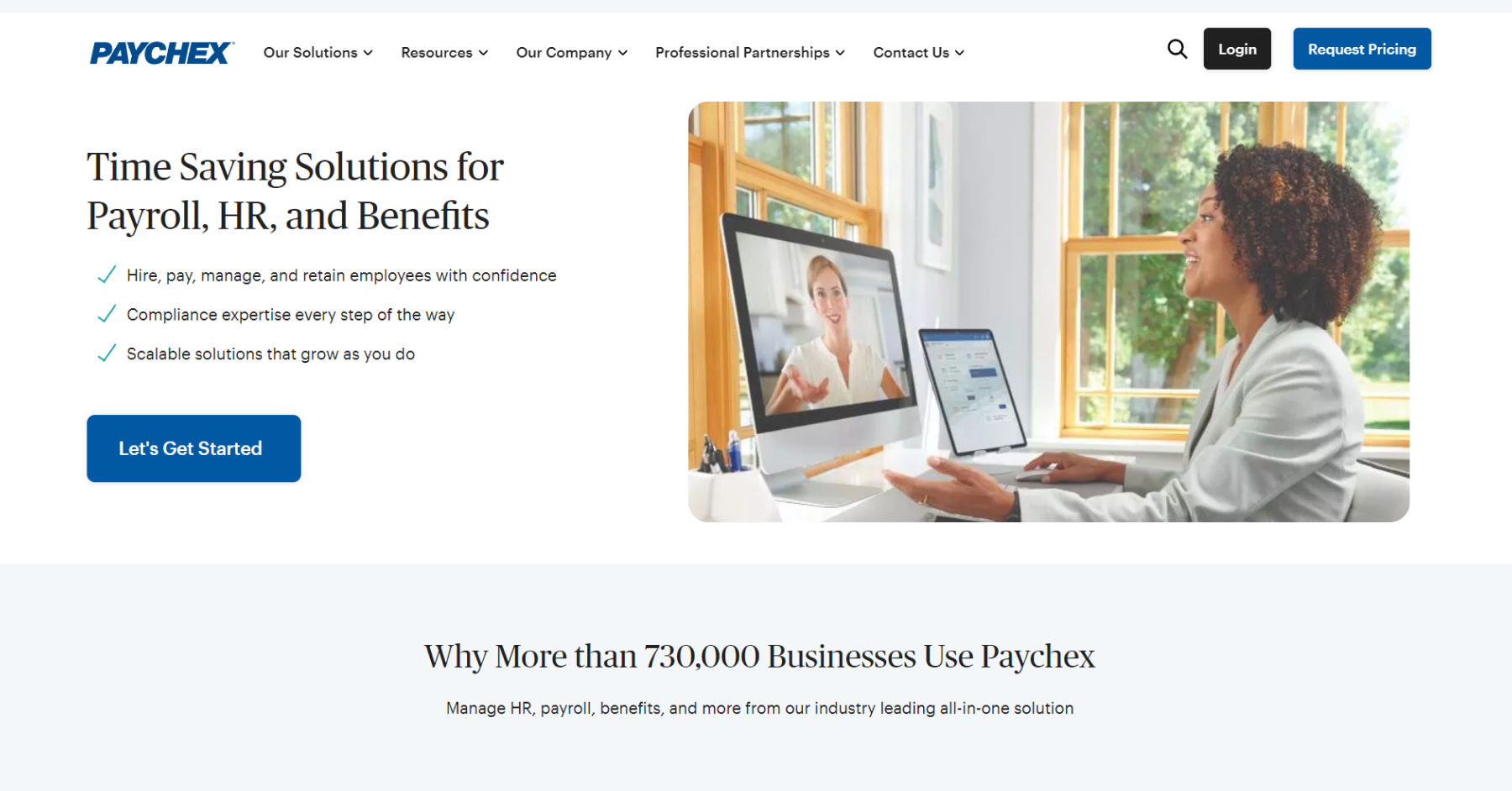
Paychex Flex is a versatile payroll management solution that offers a range of features to simplify payroll processing and HR tasks. Through Paychex Flex, HR professionals can easily handle payroll calculations, tax services, and HR administration, ensuring employees are paid accurately and on time.
The platform's self-service features empower employees to access their pay information and make updates, reducing administrative burden and fostering a more engaged workforce.
Learn more about Paychex Flex
29. QuickBooks Payroll
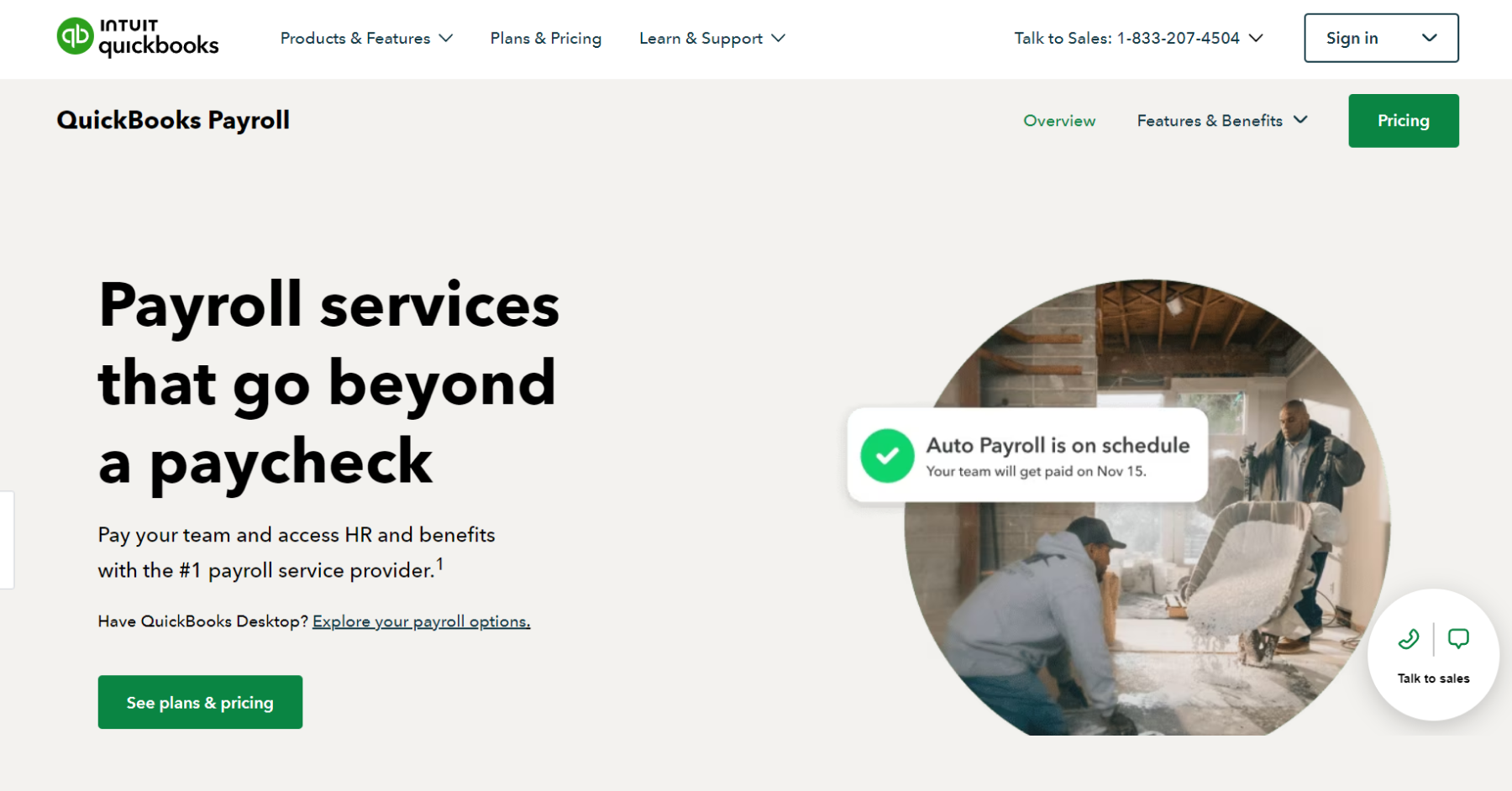
QuickBooks Payroll seamlessly integrates with QuickBooks accounting software, providing a comprehensive solution for payroll management. With QuickBooks Payroll, organizations can efficiently process payroll, calculate taxes, and generate compliance reports, all while ensuring accuracy and regulatory compliance.
This tool simplifies complex payroll tasks, allowing HR professionals to streamline their processes and allocate more time to strategic HR initiatives.
Learn more about QuickBooks Payroll
30. Patriot Software
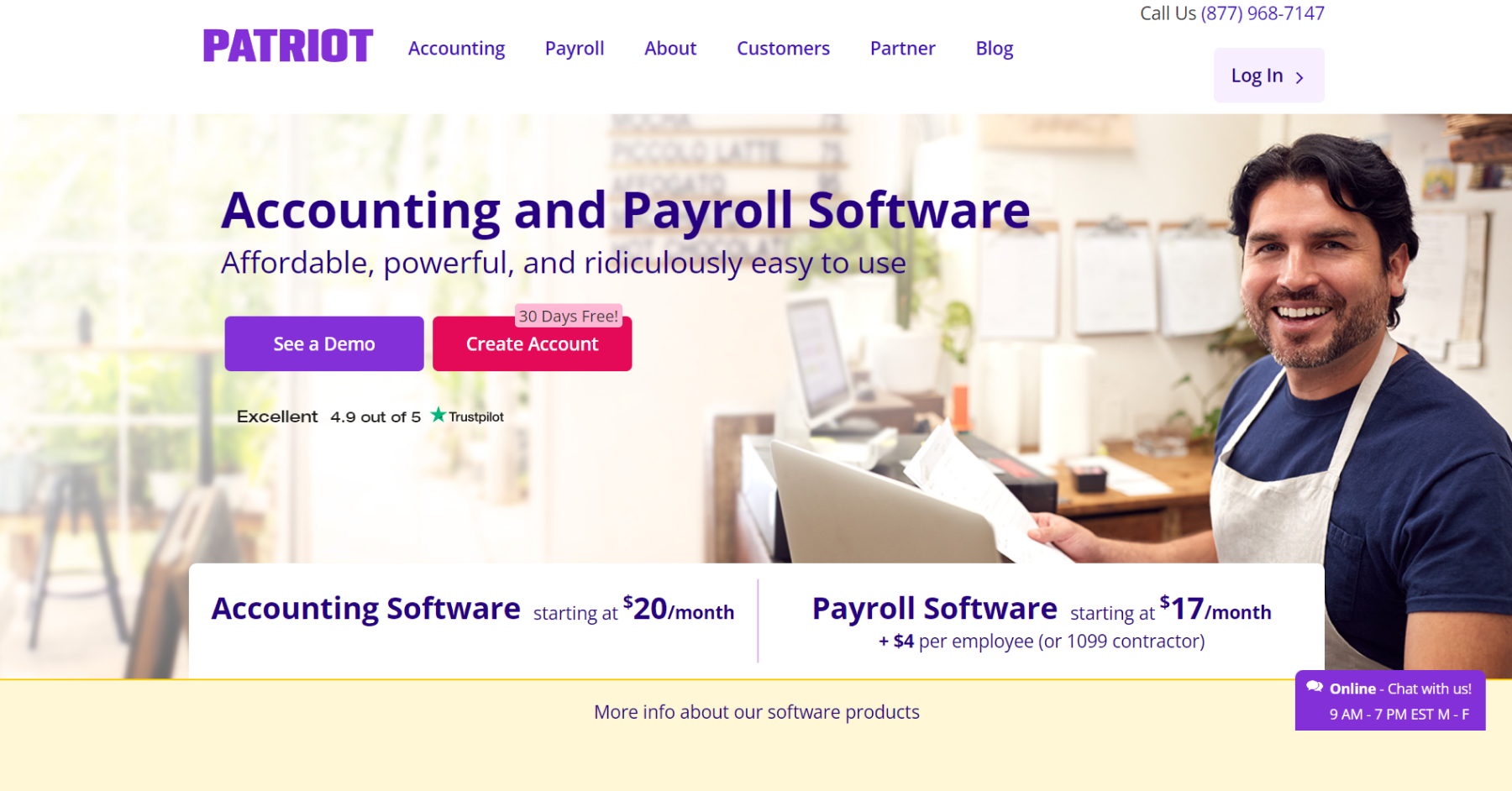
Patriot Software offers a user-friendly payroll solution tailored to the needs of small businesses. This online payroll processing tool simplifies payroll calculations, tax filing, and compliance tasks.
With Patriot Software, HR professionals can navigate payroll complexities with ease, ensuring that employees are paid accurately and that tax obligations are met. The platform's user-friendly interface and automated features make it an ideal choice for small businesses seeking efficient and reliable payroll management.
Learn more about Patriot Software
31. SurePayroll
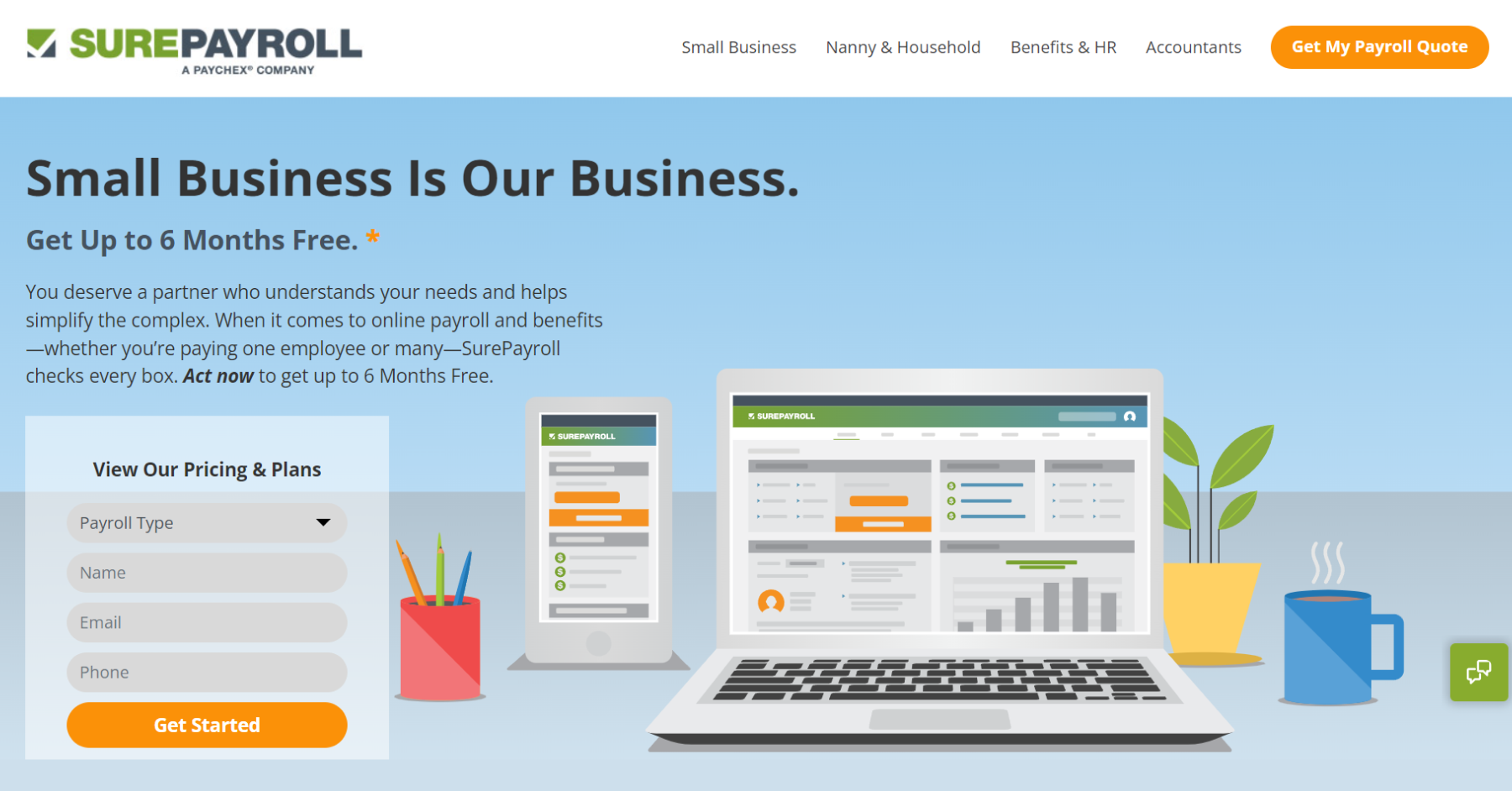
SurePayroll specializes in online payroll processing, tax services, and compliance support for small and mid-sized businesses. This platform streamlines the payroll process, simplifying tax calculations, filing, and reporting.
HR professionals can confidently manage payroll tasks, knowing that SurePayroll's features are designed to ensure accuracy and regulatory compliance. With its focus on meeting the unique needs of smaller businesses, SurePayroll offers a reliable and efficient solution for payroll management.
Learn more about SurePayroll
HR tools for time and attendance management
32. Deputy
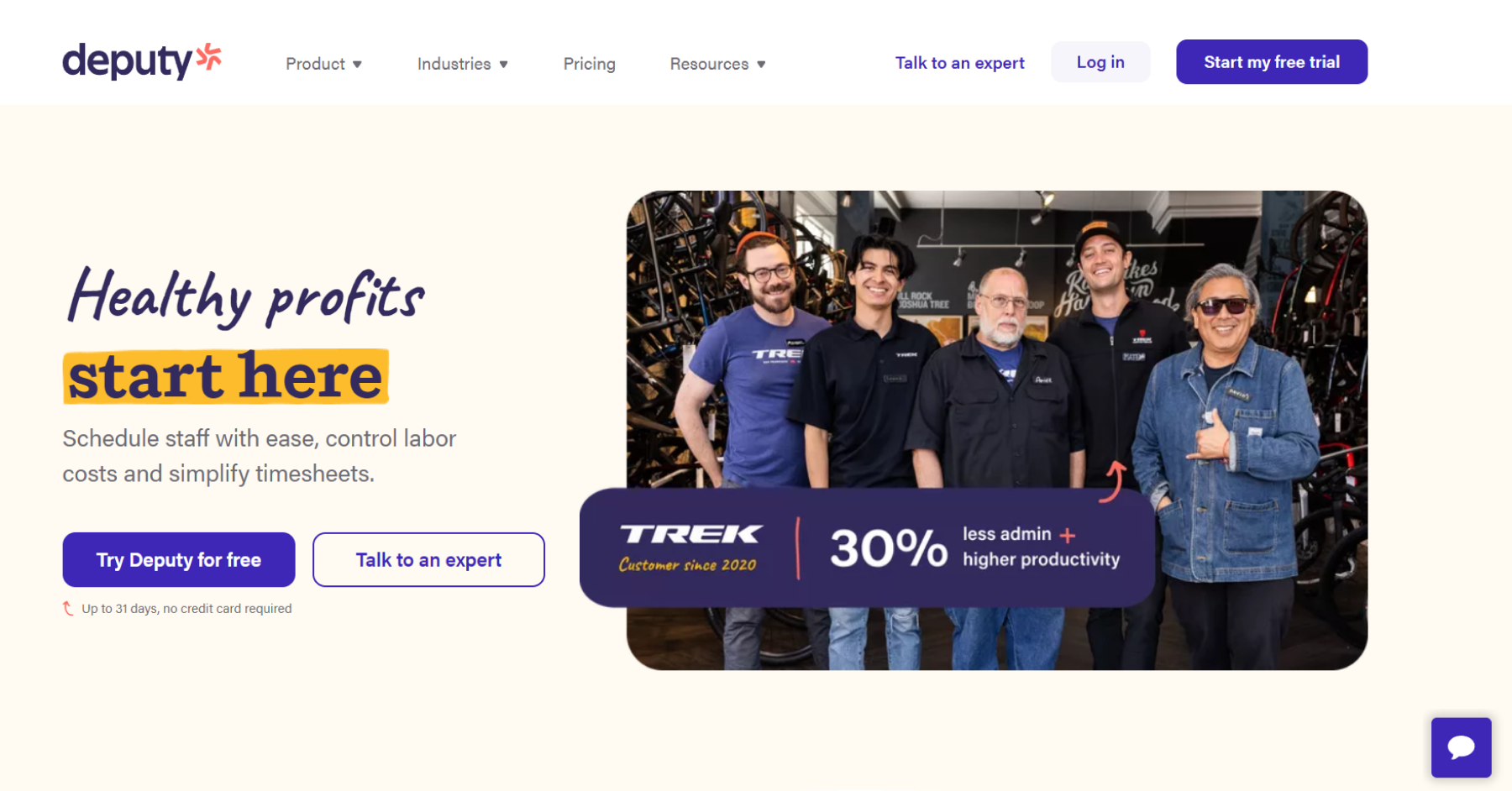
Deputy is a dynamic workforce management solution that transforms time and attendance management into a streamlined process. This tool encompasses scheduling, time tracking, and employee communication features, resulting in enhanced productivity and engagement.
With Deputy, organizations can effortlessly create and manage employee schedules, accurately track attendance, and facilitate effective communication among team members. By simplifying workforce management tasks, Deputy empowers HR professionals to allocate more time to strategic initiatives that drive organizational success.
Learn more about Deputy
33. TimeClock Plus
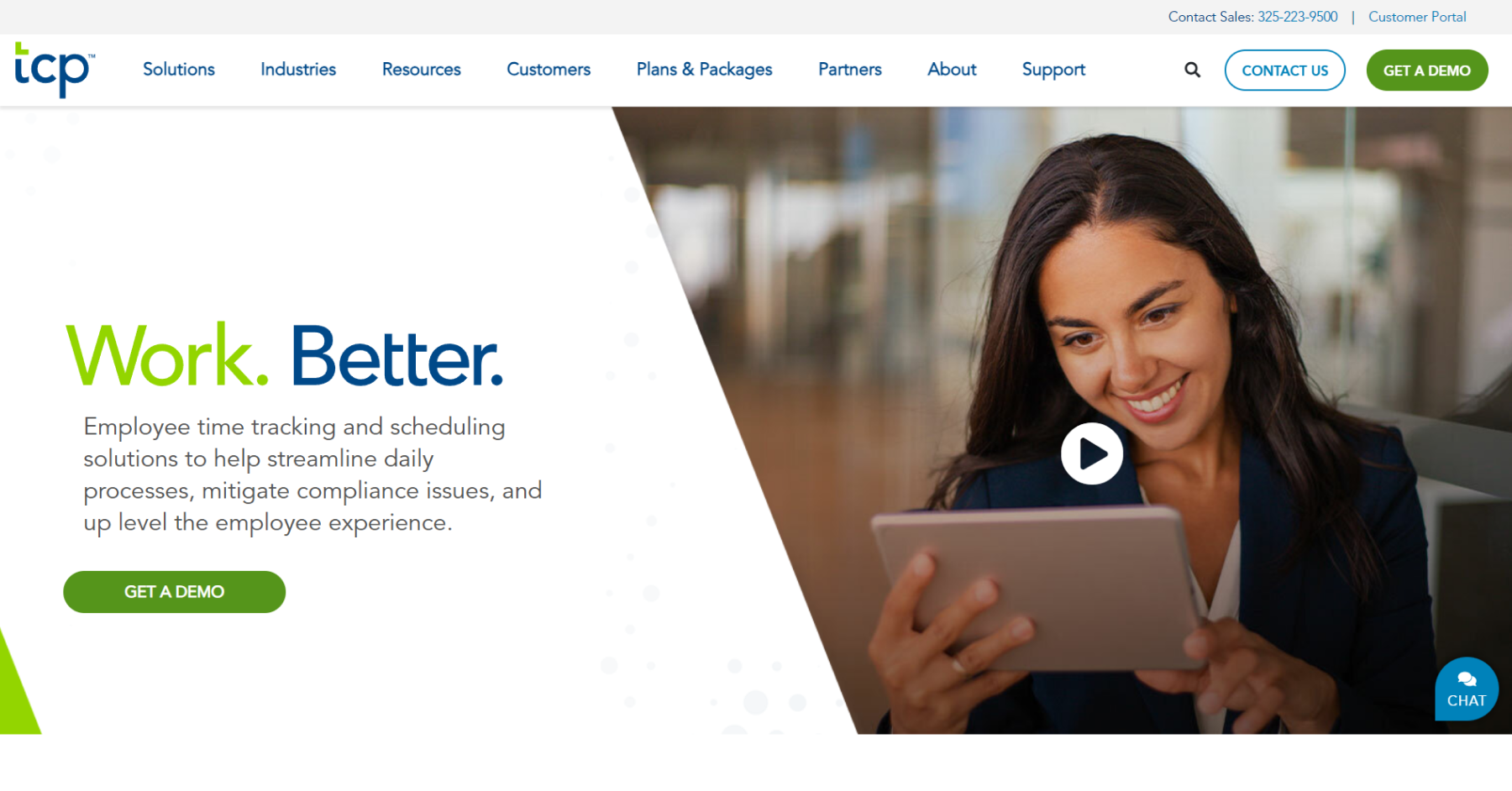
TimeClock Plus offers a comprehensive suite of time and attendance tracking tools that help organizations optimize their workforce management. Through features like time tracking, employee scheduling, and employee analytics, HR professionals can ensure that employees are efficiently utilizing their time while adhering to employee regulations.
TimeClock Plus provides valuable insights into employee data, enabling organizations to make informed decisions regarding staffing, scheduling, and resource allocation. This tool enhances workforce efficiency and contributes to better overall operational outcomes.
Learn more about TimeClock Plus
34. Clockify
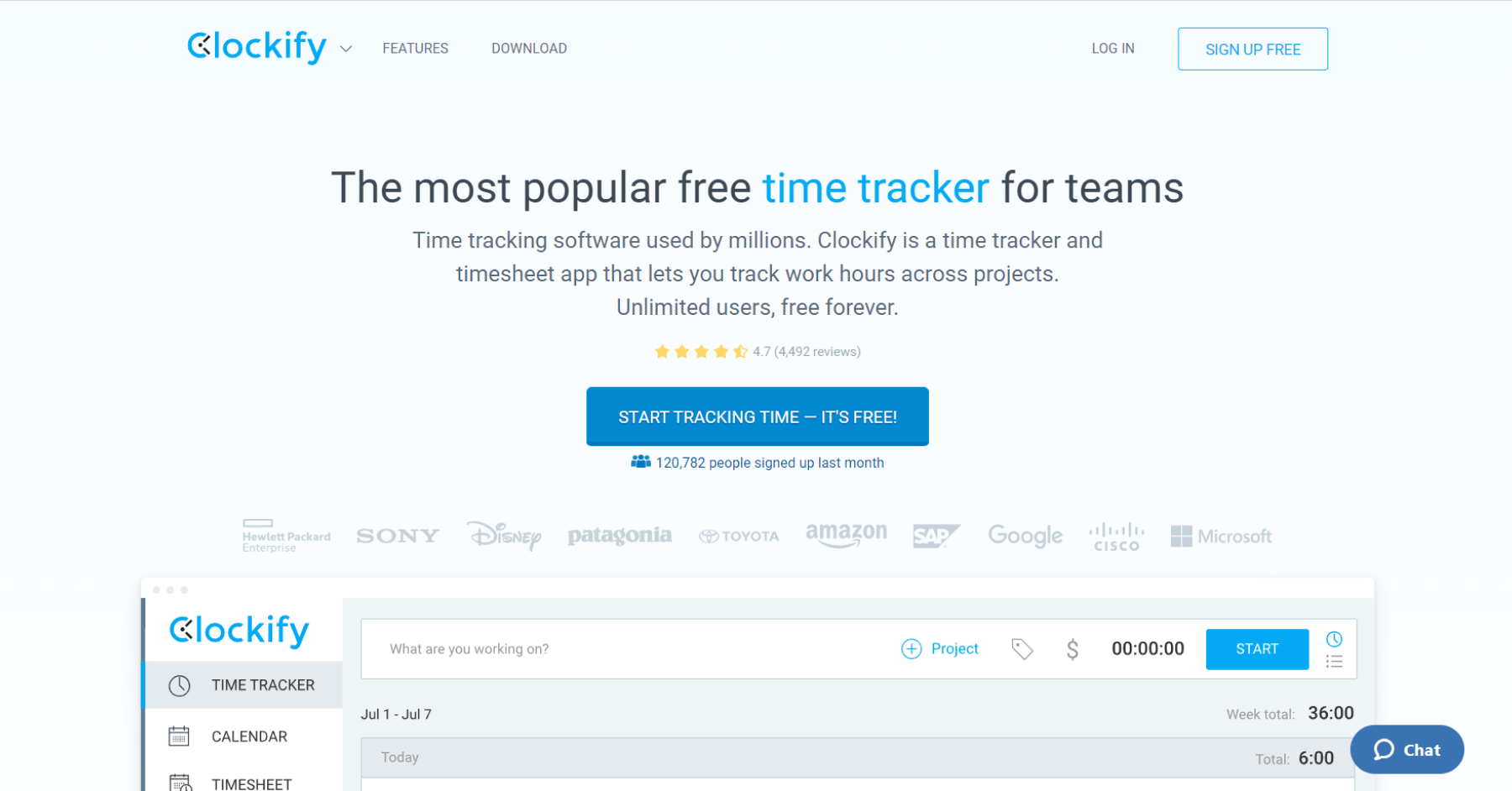
Clockify is a user-friendly time tracking tool that offers a straightforward solution for managing work hours and attendance. Designed to simplify time tracking, Clockify allows employees to log their work hours easily, and it provides managers with the ability to monitor attendance and project time.
While particularly suitable for small teams and startups, Clockify's intuitive interface and basic features make it a convenient choice for organizations seeking to monitor work hours and ensure accurate timekeeping. This free tool supports basic time and attendance management needs while promoting transparency and accountability in the workplace.
Learn more about Clockify
HR tools for startups (Free and paid)
35. Freshworks (Free)
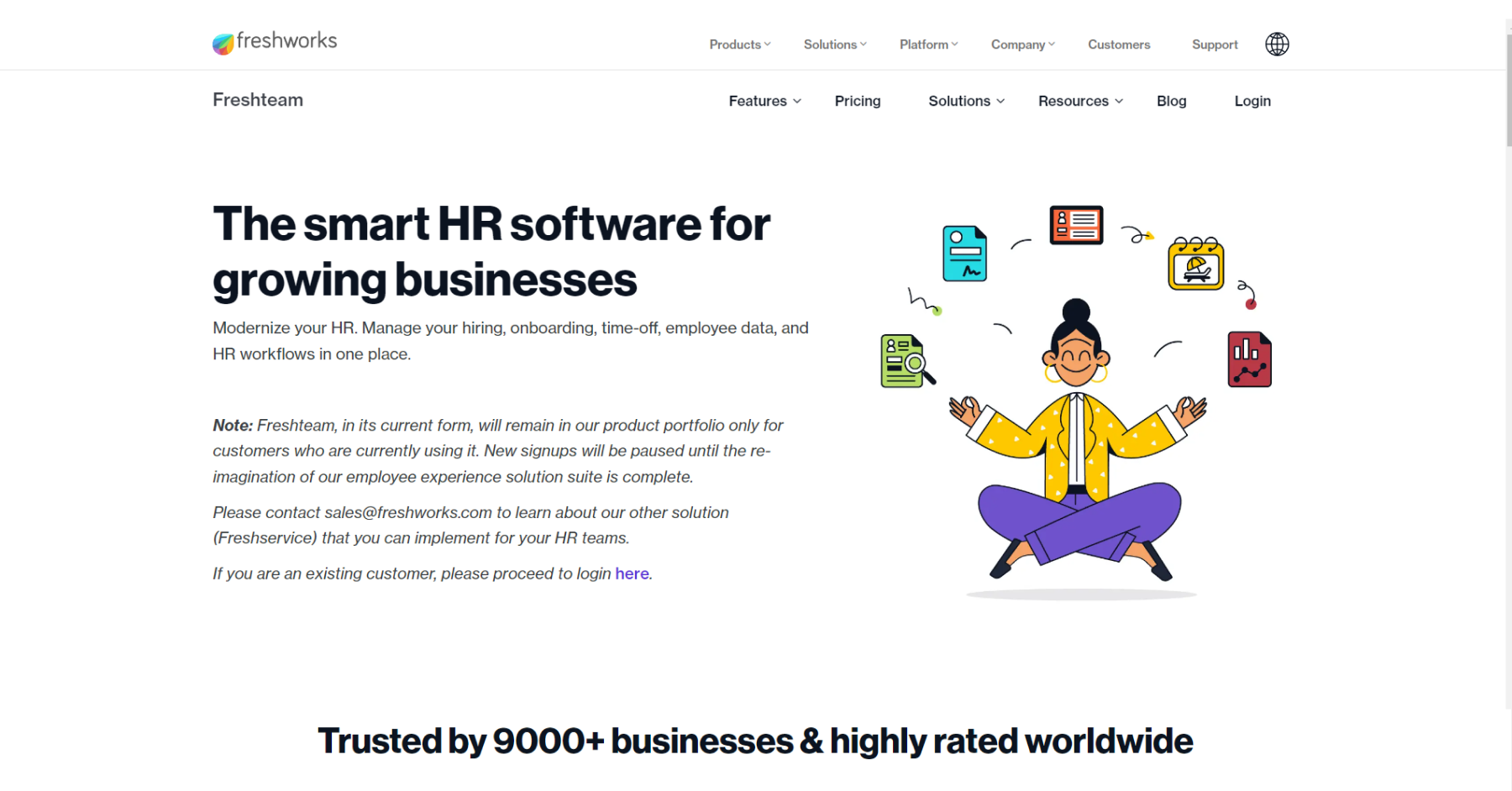
Freshworks offers comprehensive HR and task management software designed to streamline various aspects of HR operations for startups. Its platform encompasses features for employee onboarding, time tracking, leave management, and performance reviews.
Freshworks' user-friendly interface and customizable workflows make it an ideal choice for startups looking to simplify HR processes and improve employee experiences. The platform's automation capabilities contribute to efficient people management and compliance.
Learn more about Freshworks
36. Zoho (Free)

Zoho provides a suite of business tools that include HR management software suitable for startups. Zoho's HR software covers employee data management, time and attendance tracking, performance management, and more.
Its integration with other Zoho products offers startups a seamless solution for overall business management. Zoho's versatile platform aids startups in handling HR tasks effectively and supports growth while maintaining compliance.
Learn more about Zoho
37. Connecteam (Free)
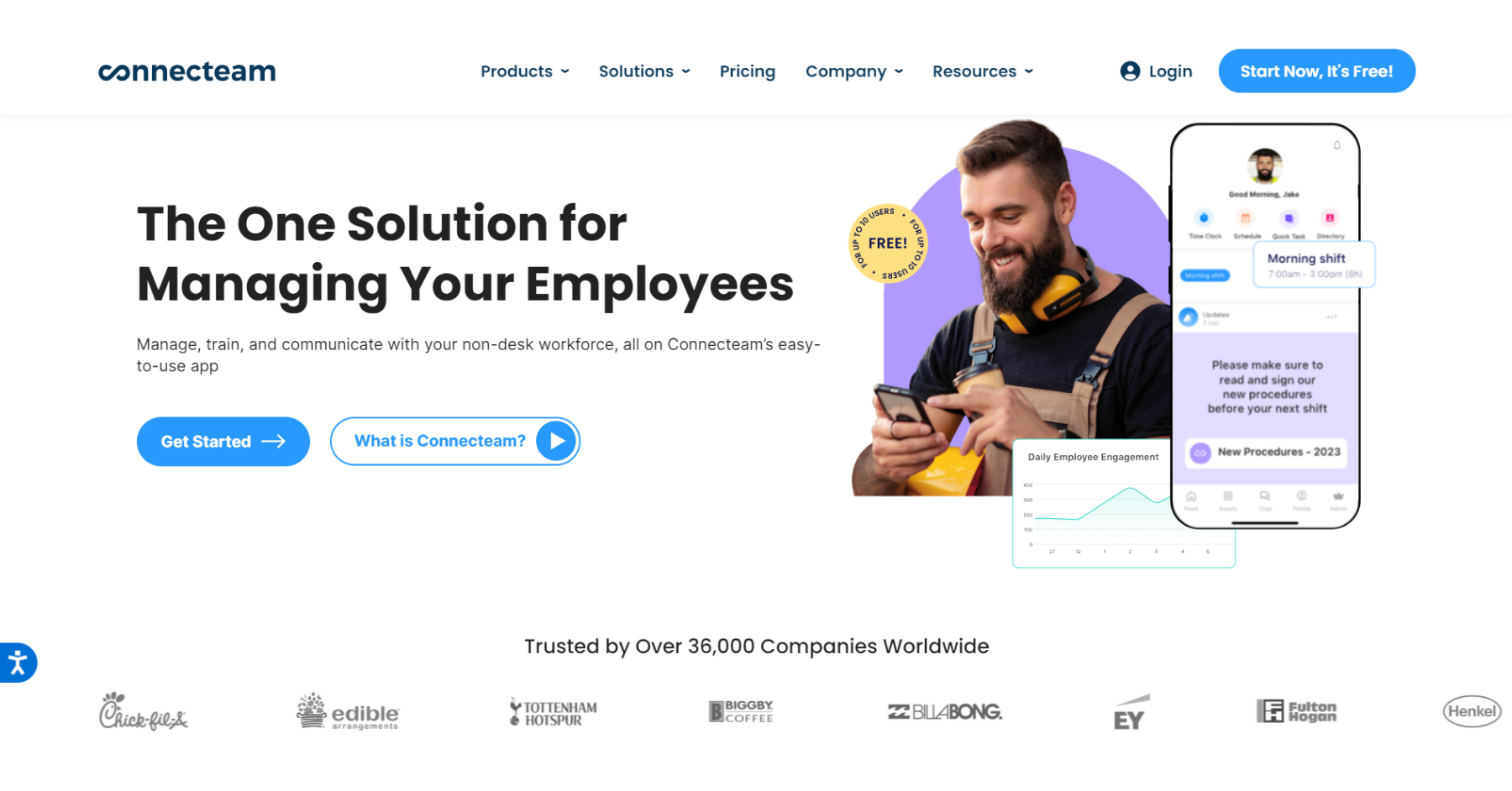
Connecteam is a comprehensive workforce management platform that caters to the unique needs of startups. It offers a range of features designed to streamline HR processes, enhance communication, and improve employee engagement.
With Connecteam, startups can create customized employee apps to manage tasks such as time tracking, shift scheduling, employee onboarding, and training. The platform's user-friendly interface and mobile accessibility empower startups to effectively manage their workforce, especially for remote or distributed teams.
Learn more about Connecteam
38. Lever
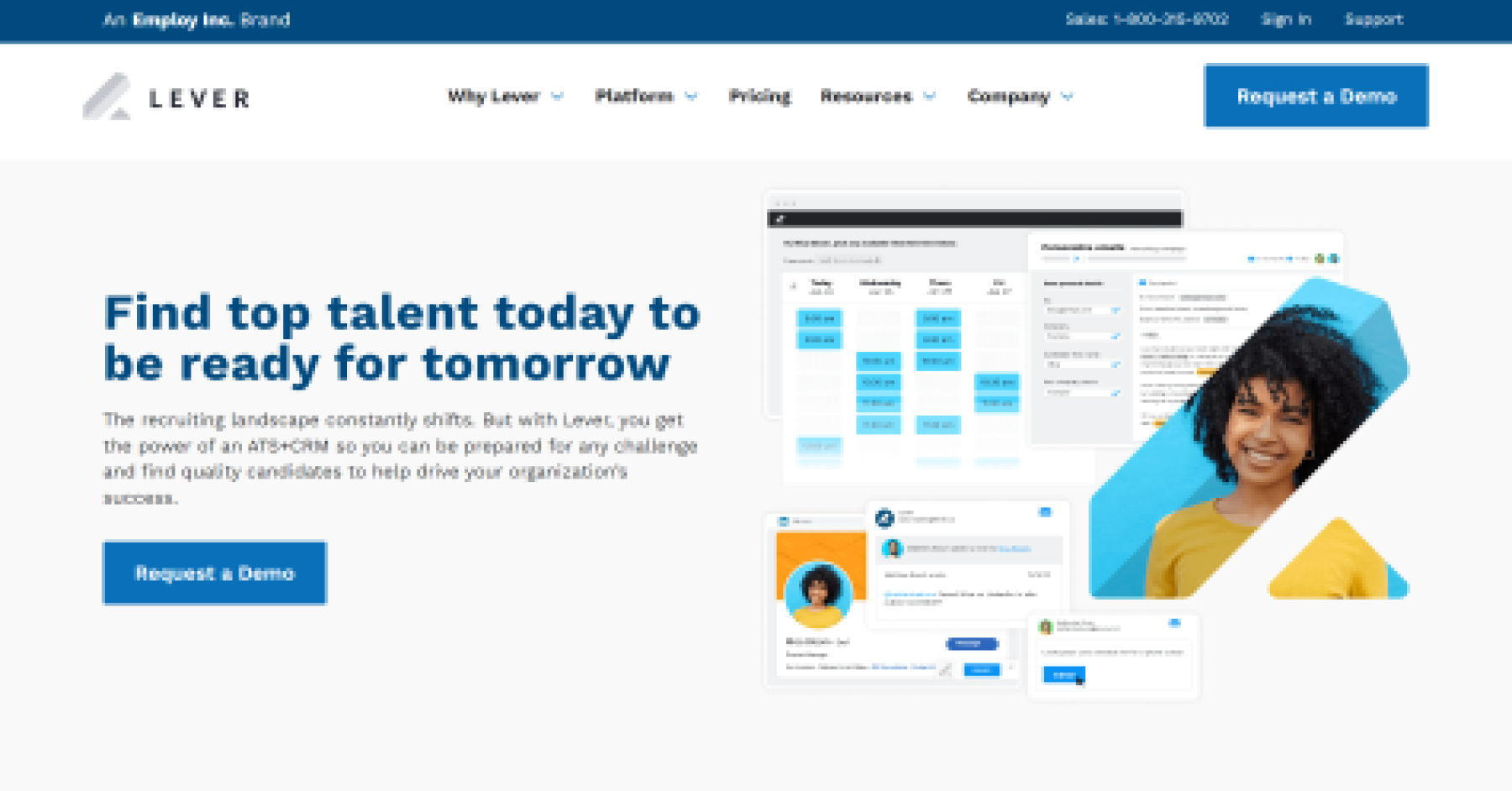
Lever is a modern applicant tracking system (ATS) tailored for startups seeking to streamline their recruitment processes. With its intuitive interface and collaborative features, Lever helps startups attract, engage, and hire top talent.
The platform enables seamless job posting, candidate sourcing, and interview coordination, facilitating efficient and organized recruitment efforts. Lever's data-driven insights and analytics empower HR teams to make informed hiring decisions, contributing to successful talent acquisition and company growth.
Learn more about Lever
39. Kudos
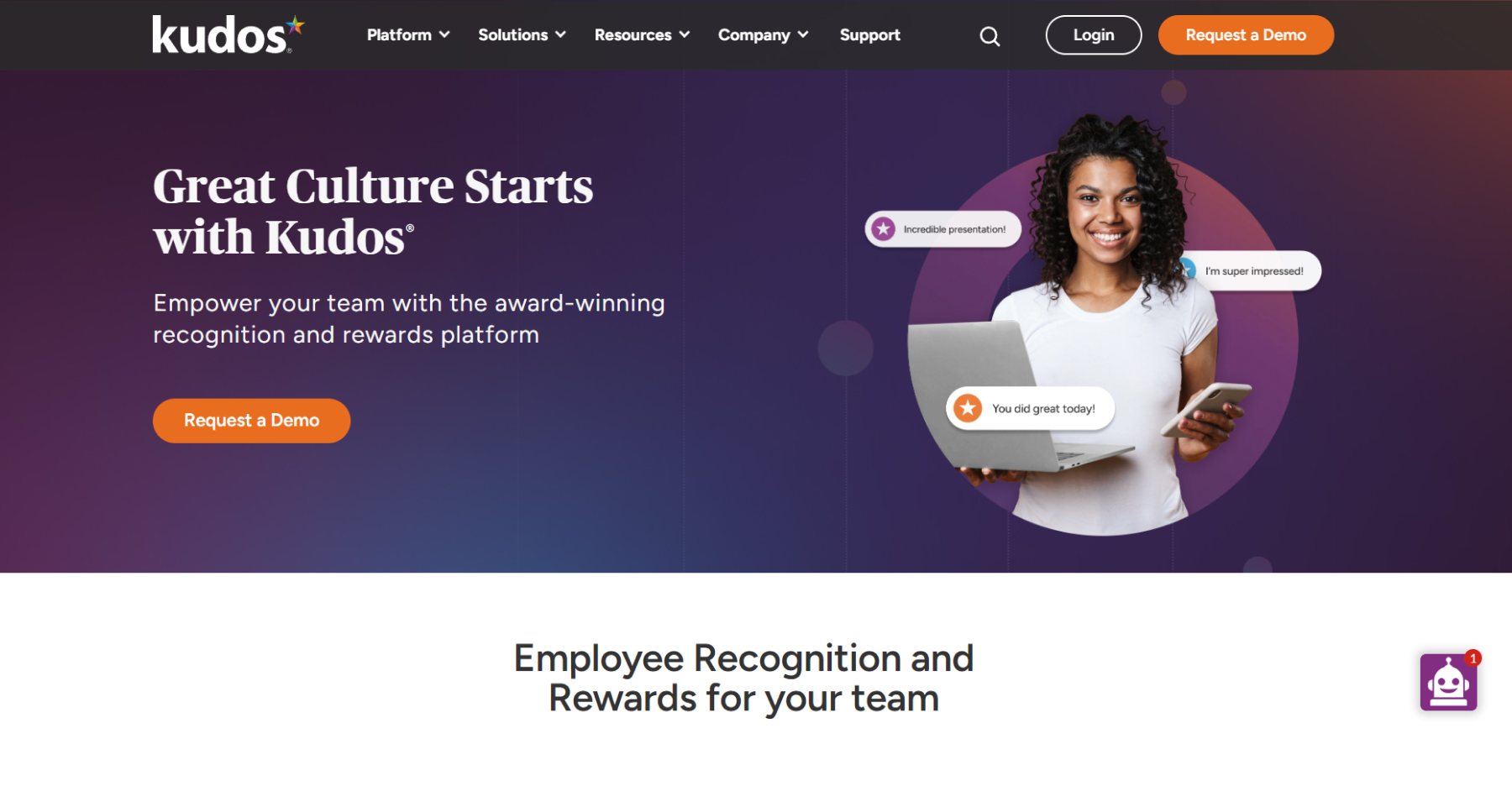
Kudos is an employee recognition and engagement platform designed to cultivate a positive workplace culture within startups. Through Kudos, startups can celebrate and appreciate employee achievements, fostering a sense of belonging and motivation.
The platform enables peer-to-peer recognition, rewards, and customizable appreciation messages, contributing to increased employee morale and engagement. Kudos promotes a culture of continuous feedback and appreciation, enhancing teamwork and employee satisfaction within startup environments.
Learn more about Kudos
Other HR tools
40. RecruitingCRM (Free)
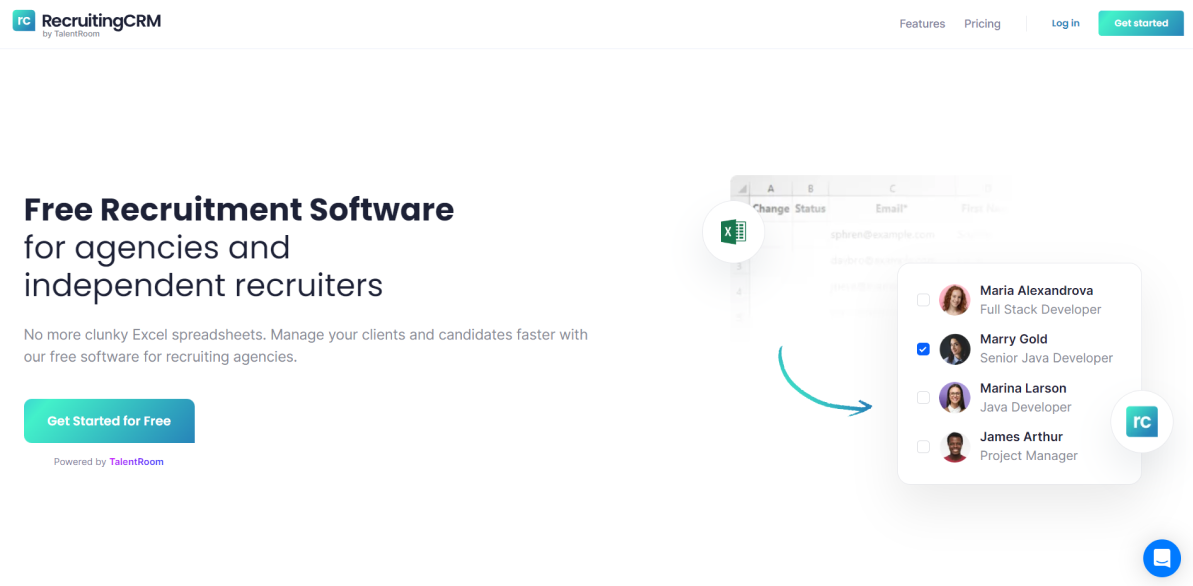
RecruitingCRM is a free talent acquisition software on a mission to change the way recruiters work. They help recruitment agencies and independent recruiters manage their clients and candidates faster and more easily than ever before.
The top reasons recruiters love their platform are the LinkedIn Chrome Extension to import the candidates, the user-friendly interface, and the consolidated views of the hiring pipeline! It’s also completely Free for their users.
Learn more about RecruitingCRM
41. EssayPro
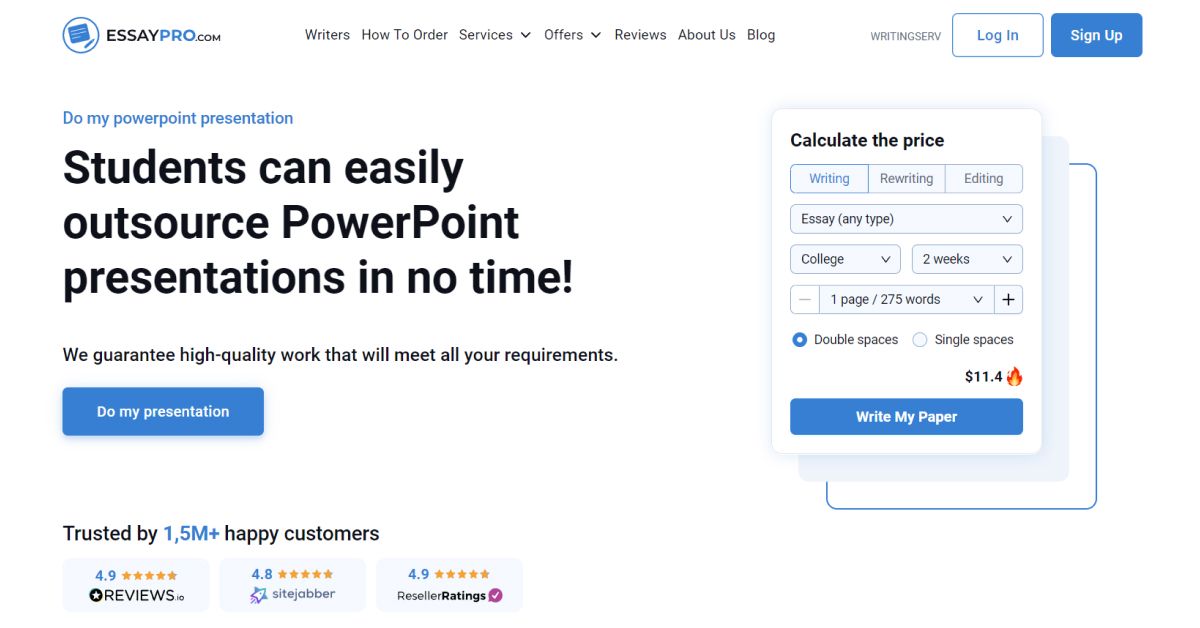
EssayPro's PowerPoint Presentation feature is designed to revolutionize the way students and professionals create engaging presentations. Their service offers expertly crafted presentations tailored to meet specific requirements, ensuring your ideas are communicated effectively and professionally.
The top reasons users love EssayPro's PowerPoint Presentation feature are the ability to customize presentations to fit any topic, the high-quality visuals and animations, and the professional touch that enhances the overall impact.
Learn more about EssayPro's PowerPoint Presentation
Conclusion
In the grand symphony of business success, the harmonious interplay of HR tools is nothing short of a masterpiece. These digital virtuosos orchestrate recruitment, development, and engagement, ensuring each employee's note resonates within the grand composition of your organization.
Amidst this ensemble, CultureMonkey's employee engagement feedback platform stands as a conductor extraordinaire. With its intuitive interface and insightful analytics, CultureMonkey finely tunes your employee engagement, transforming discord into a symphony of motivation and productivity.
Explore the maestro of engagement at CultureMonkey and witness the transformative power of orchestrating a culture of unparalleled success.
FAQs
What are HR tools used for?
HR tools streamline tasks like recruitment, training, and payroll, enhancing efficiency and employee experience. They provide data-driven insights that facilitate informed decisions, driving strategic growth and success for businesses of all sizes.
How do HR tools improve efficiency?
HR tools automate administrative tasks such as applicant tracking and payroll processing. This automation reduces manual efforts, enhances accuracy, and frees up time and resources for more impactful endeavors, boosting overall operational efficiency.
Are HR tools essential for startups?
Absolutely! HR tools are indispensable for startups. They streamline essential processes like recruitment, onboarding, and compliance management, providing startups with efficient, structured operations crucial for sustained growth and success right from the beginning.
What is the role of HR tools in employee engagement?
HR tools play a pivotal role in assessing and improving employee engagement. Platforms like CultureMonkey offer surveys and analytics, enabling businesses to understand employee sentiments, gather feedback, and foster a motivated and satisfied workforce, thereby enhancing overall engagement levels.
How do HR tools contribute to data-driven decision-making?
HR tools harness data analytics to provide insights into various HR aspects, such as recruitment, performance, and engagement. By converting raw data into actionable insights, these tools empower businesses to make informed decisions, driving strategic growth and optimizing workforce management.
How do HR tools benefit startups compared to traditional HR methods?
HR tools benefit startups by automating repetitive tasks, reducing administrative burden, and improving accuracy. They enable easy access to employee data, facilitate faster decision-making, and ensure compliance with regulations. Additionally, HR tools offer scalability, allowing startups to adapt to changing workforce needs more efficiently compared to traditional, manual HR processes.
Can HR tools assist startups in managing remote or distributed teams?
Yes, HR tools are invaluable for startups with remote or distributed teams. They offer virtual collaboration features, such as video conferencing, document sharing, and task management, facilitating communication and coordination among remote employees. Additionally, HR tools provide platforms for remote onboarding, training, and performance management, ensuring consistent support and engagement regardless of employees' locations.
How do HR tools help startups maintain employee satisfaction and morale?
HR tools contribute to employee satisfaction and morale by facilitating transparent communication, recognition, and career development opportunities. Through features like employee feedback surveys, peer recognition programs, and performance feedback mechanisms, HR tools enable startups to understand and address employee needs effectively. Additionally, by offering training and growth opportunities, HR tools empower employees, fostering a positive work culture and enhancing overall satisfaction and morale.



